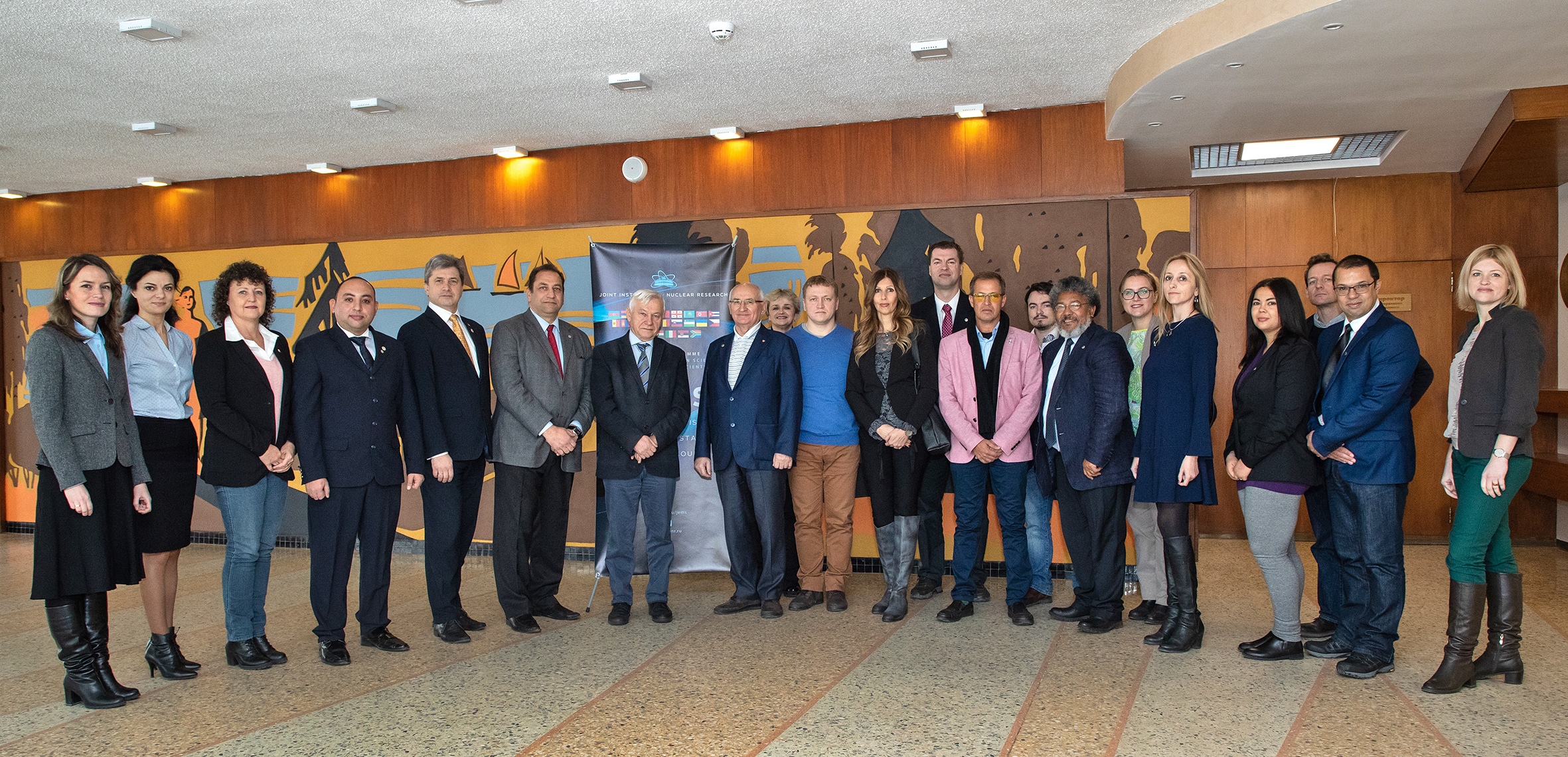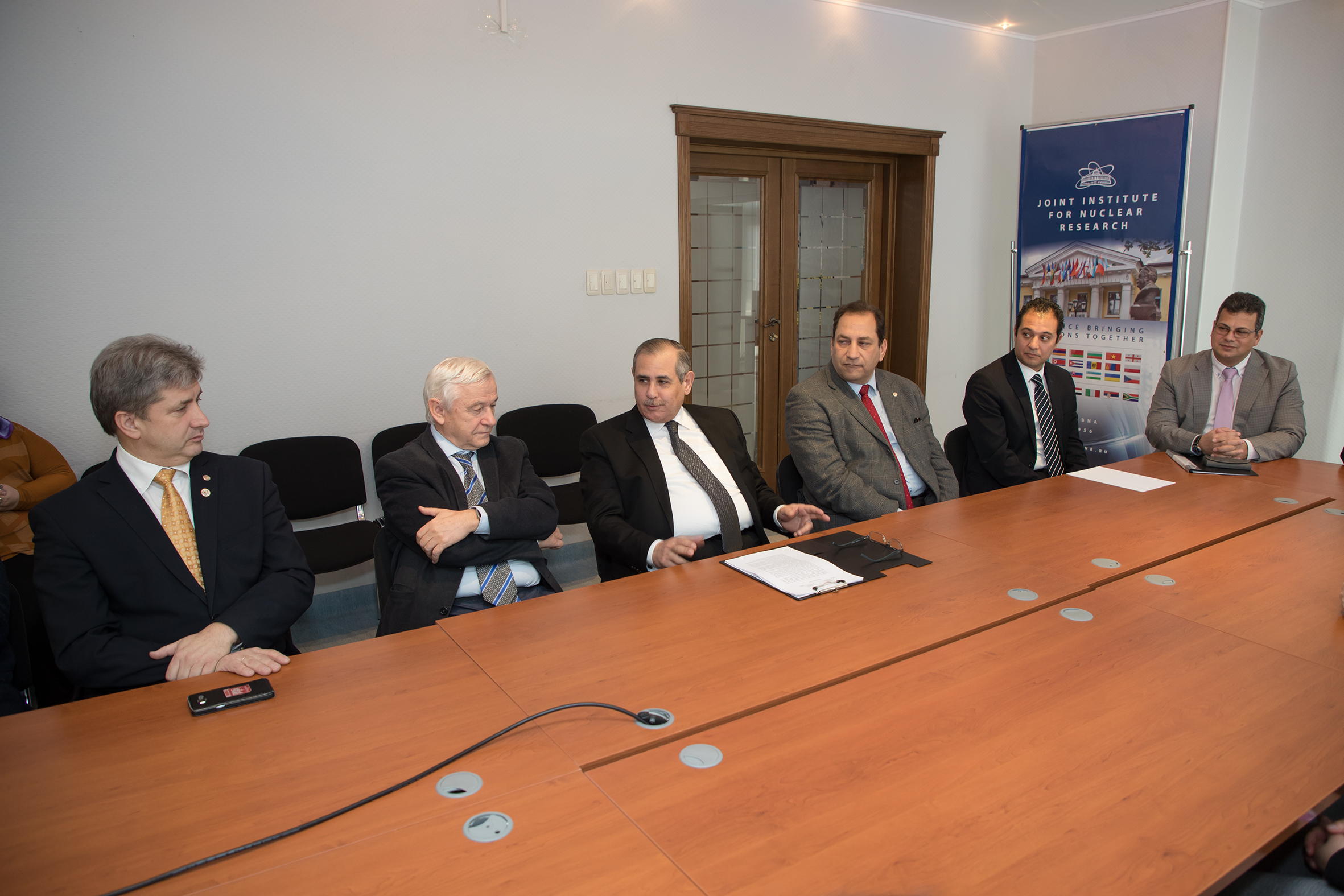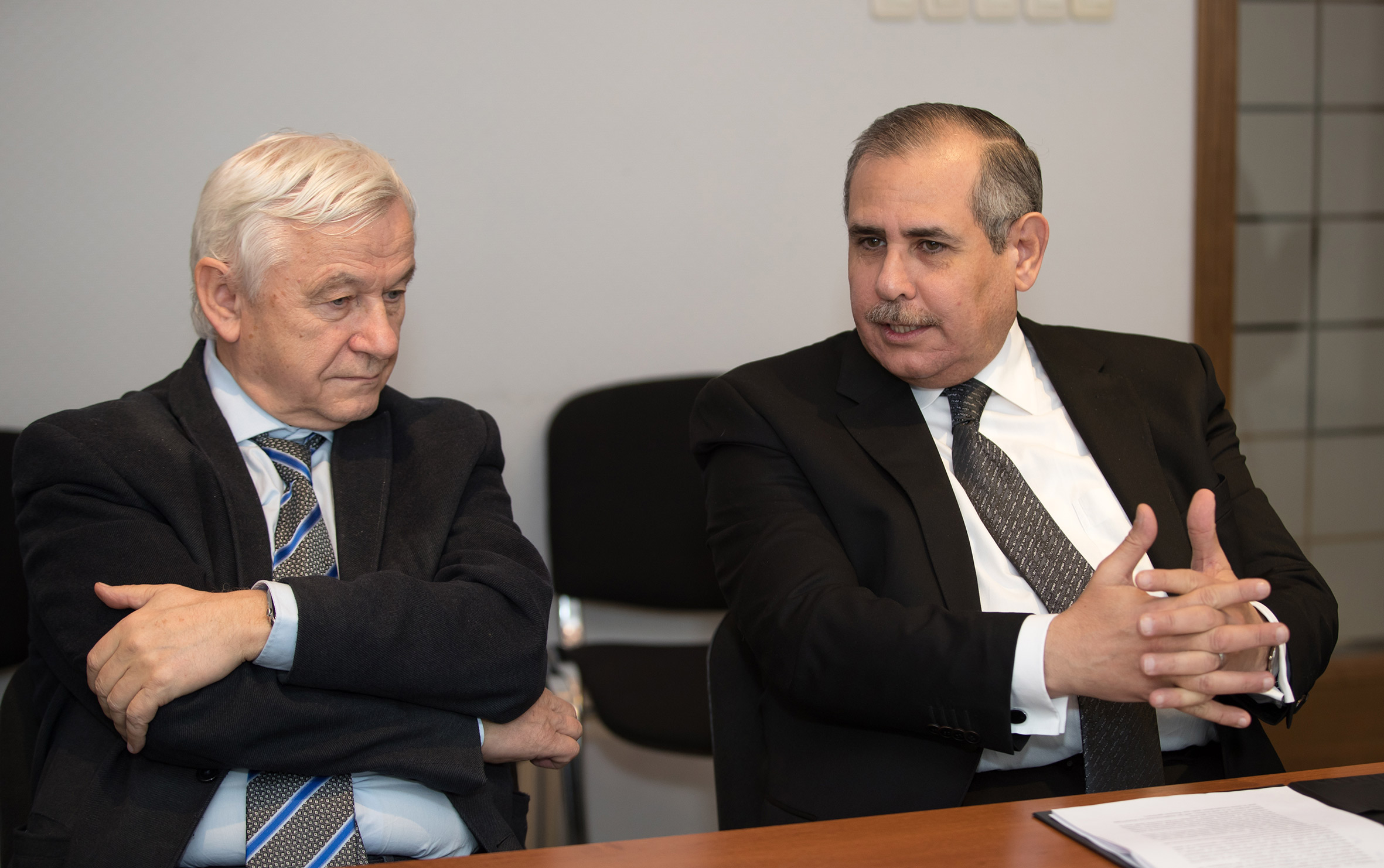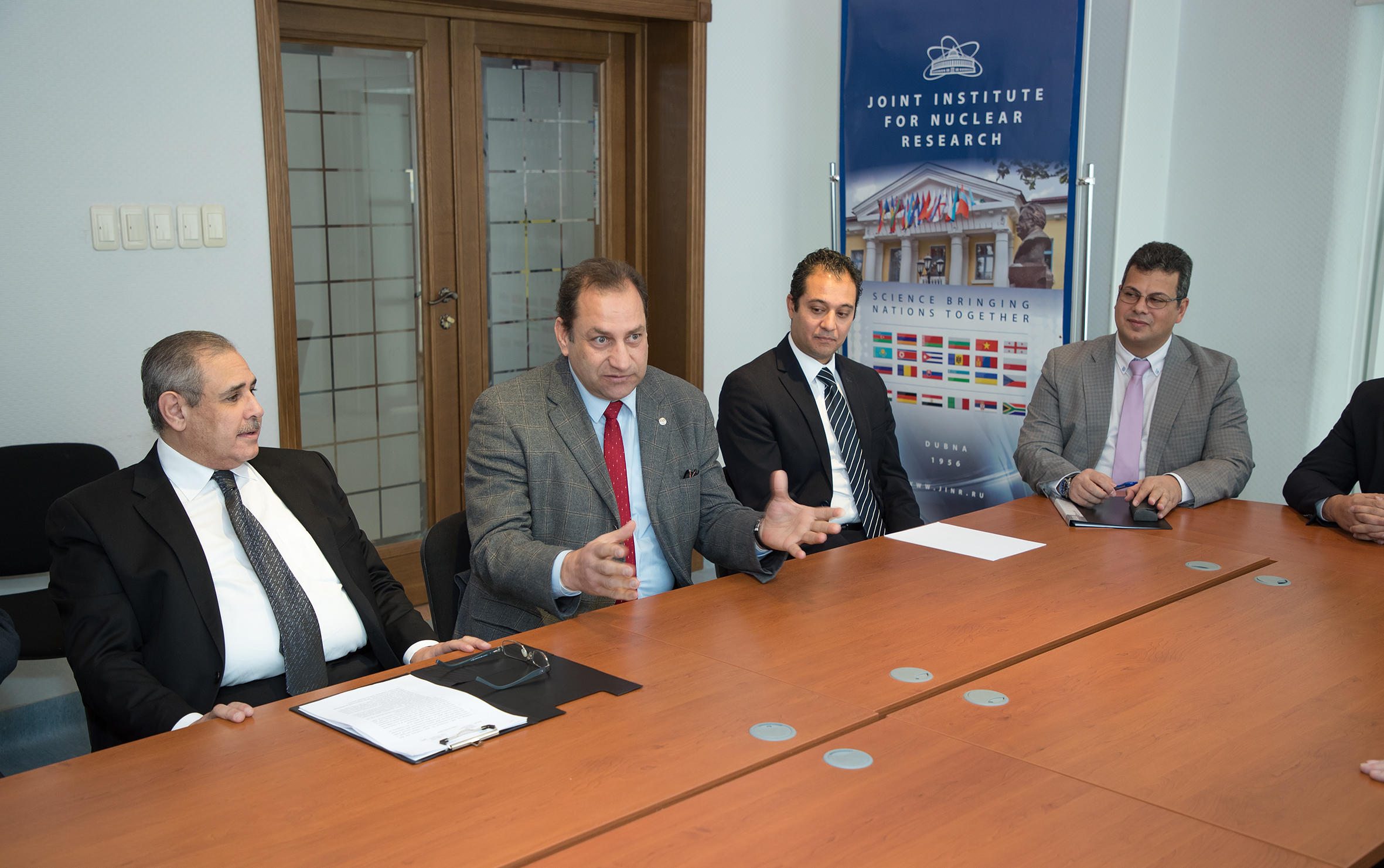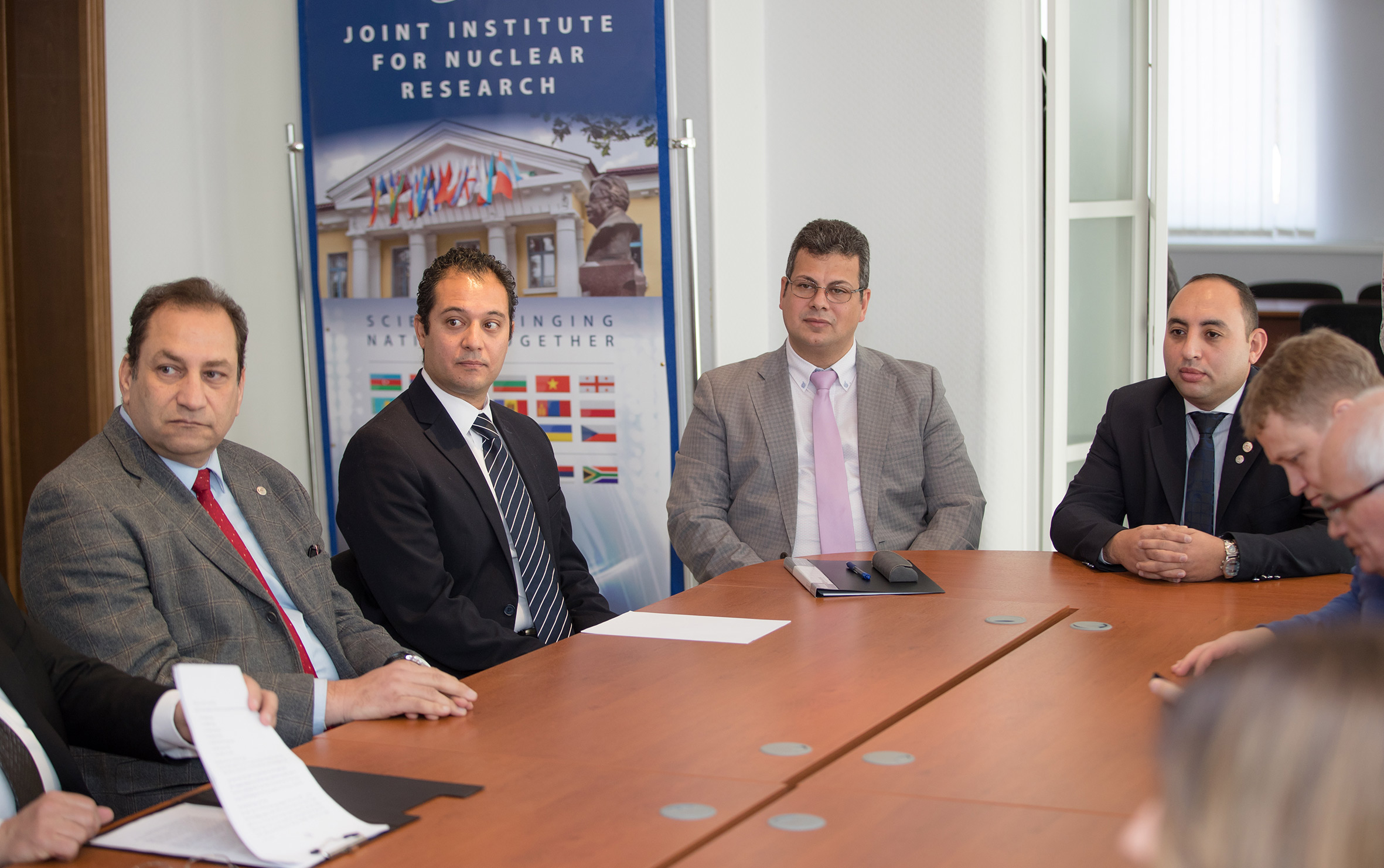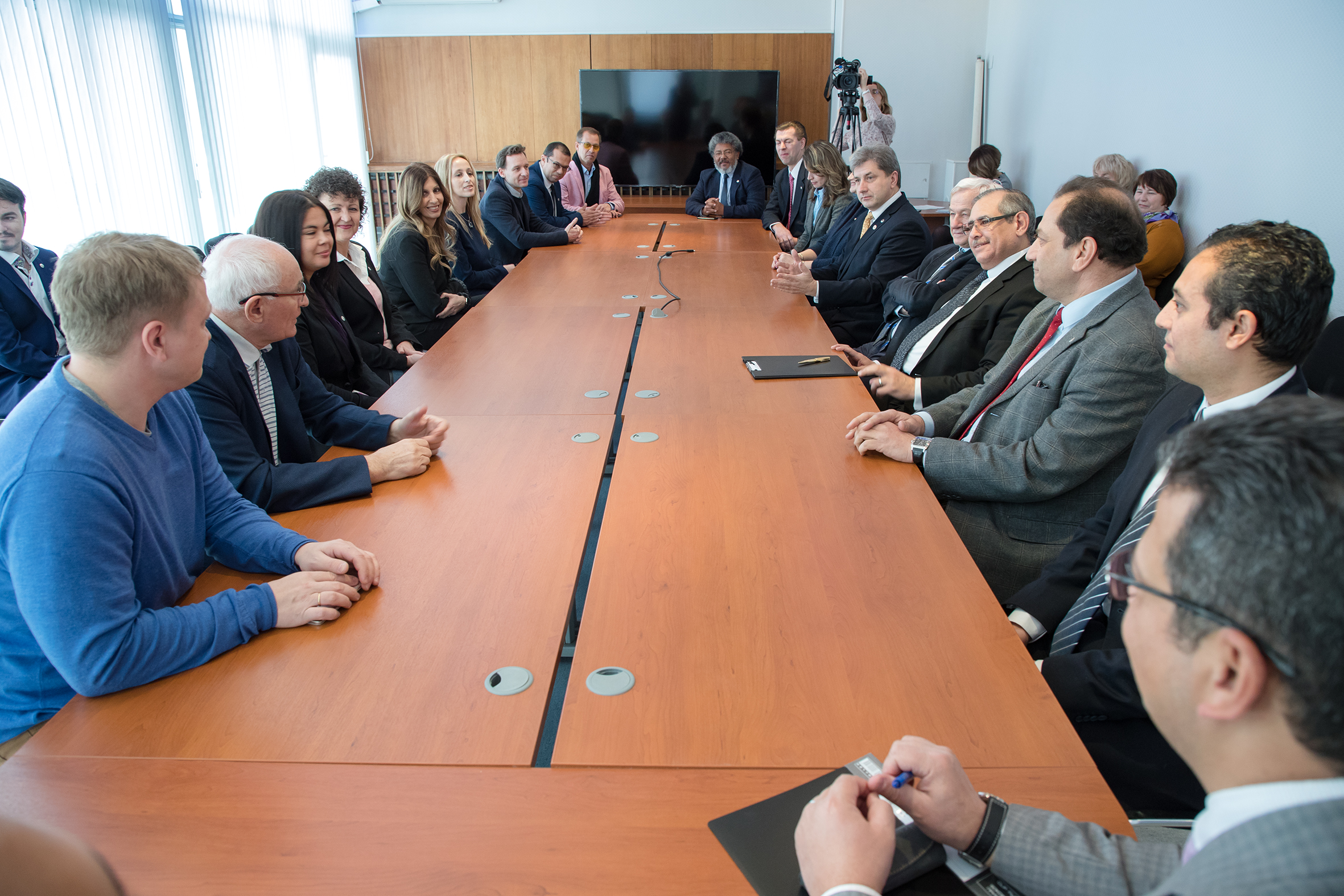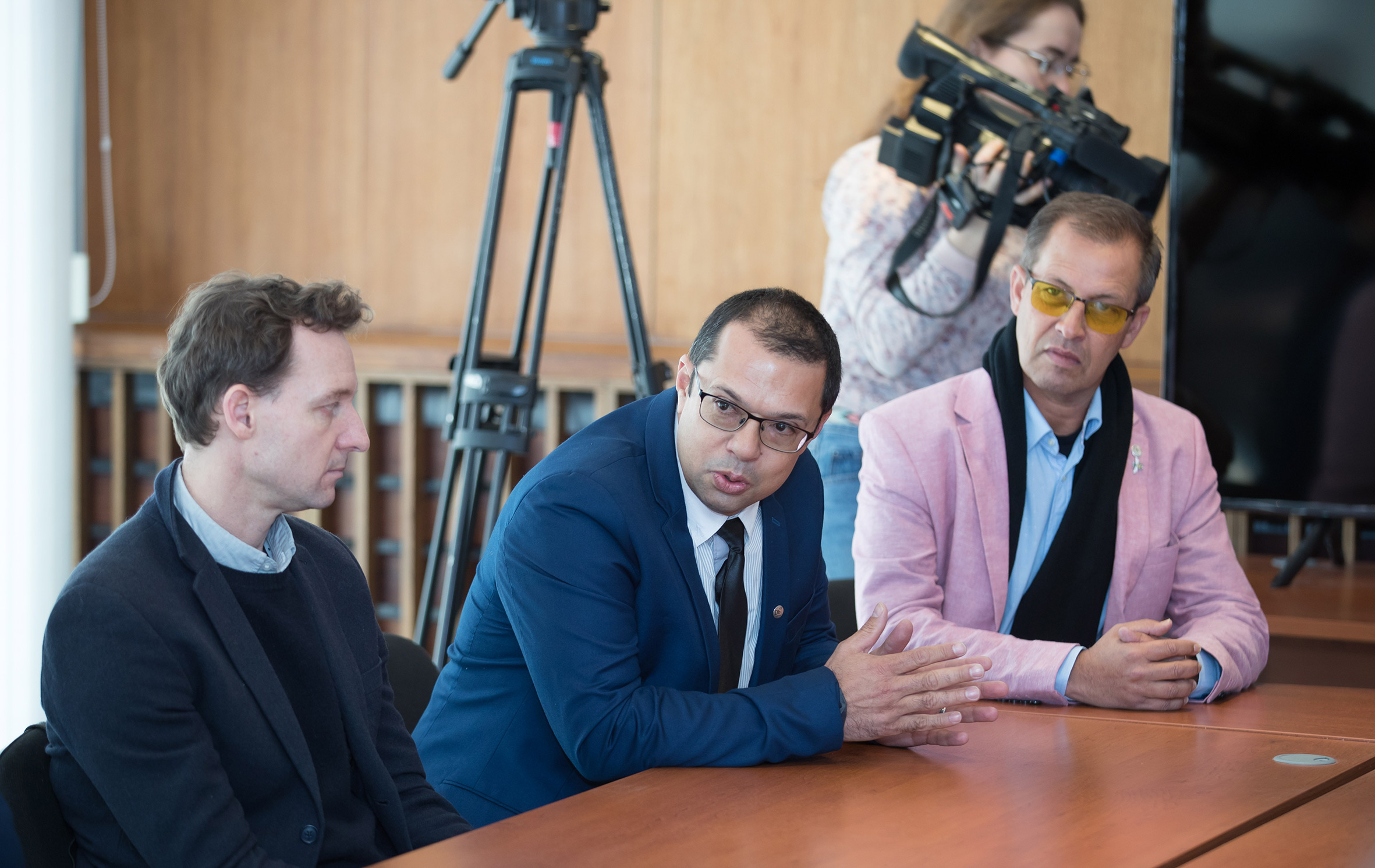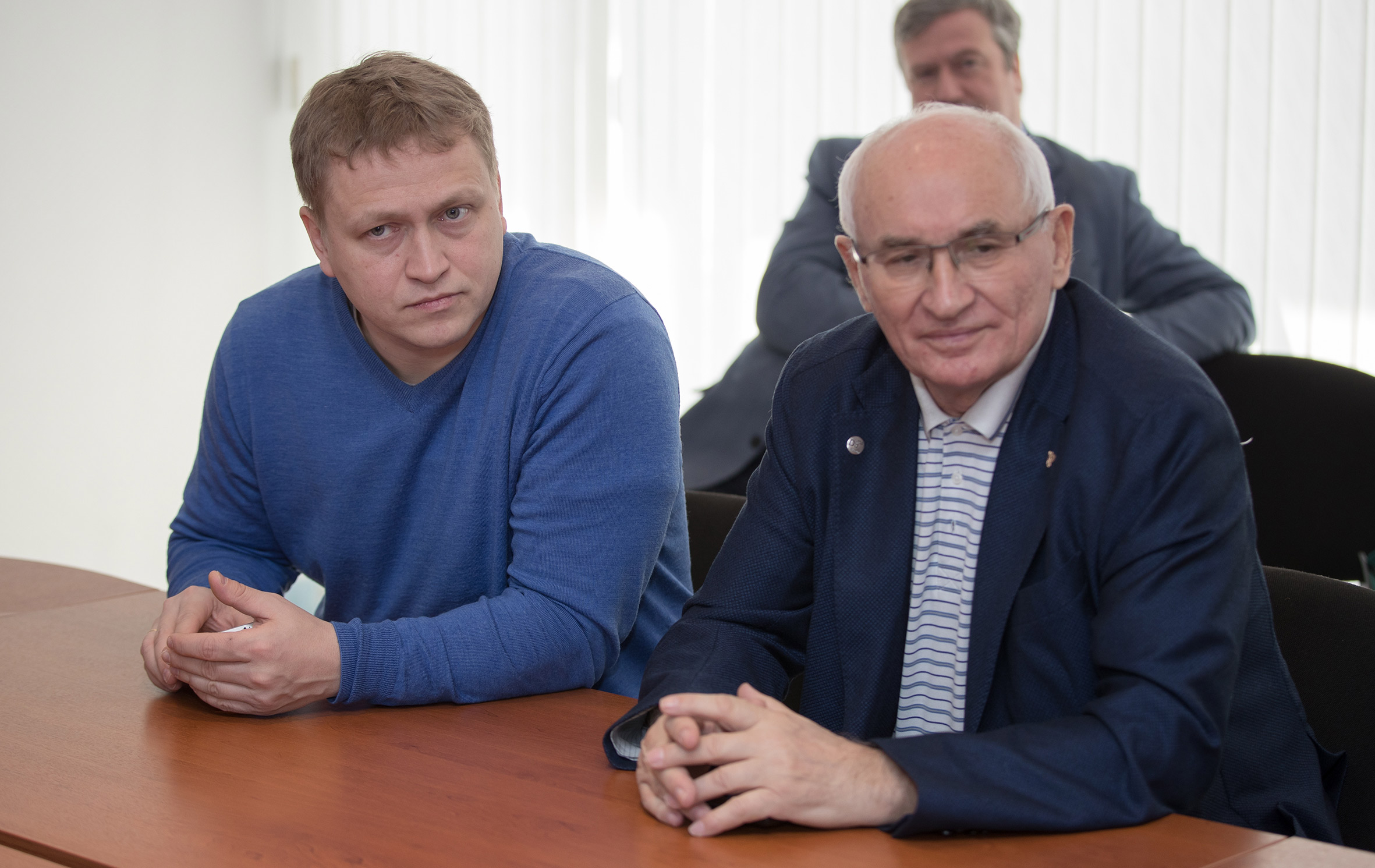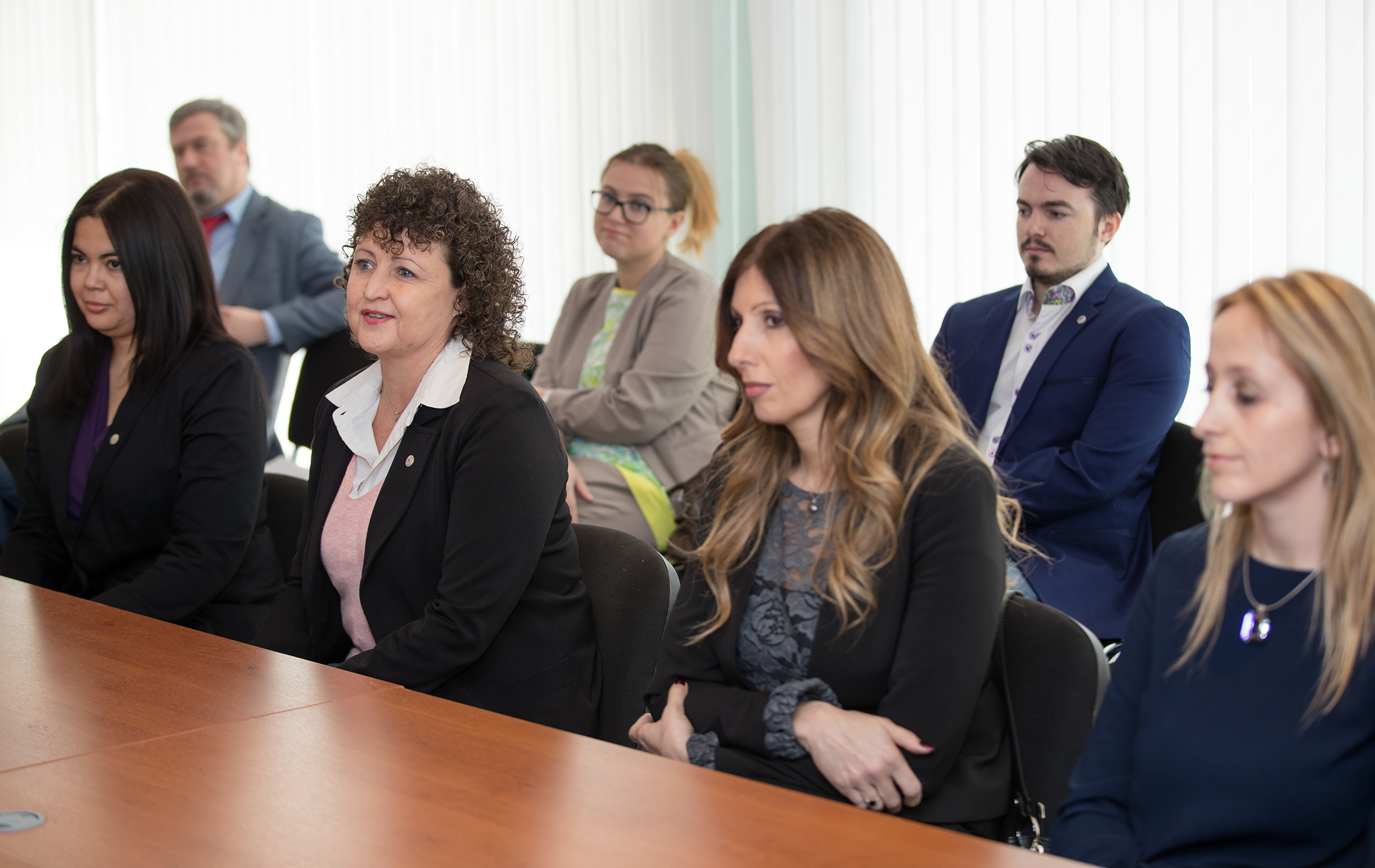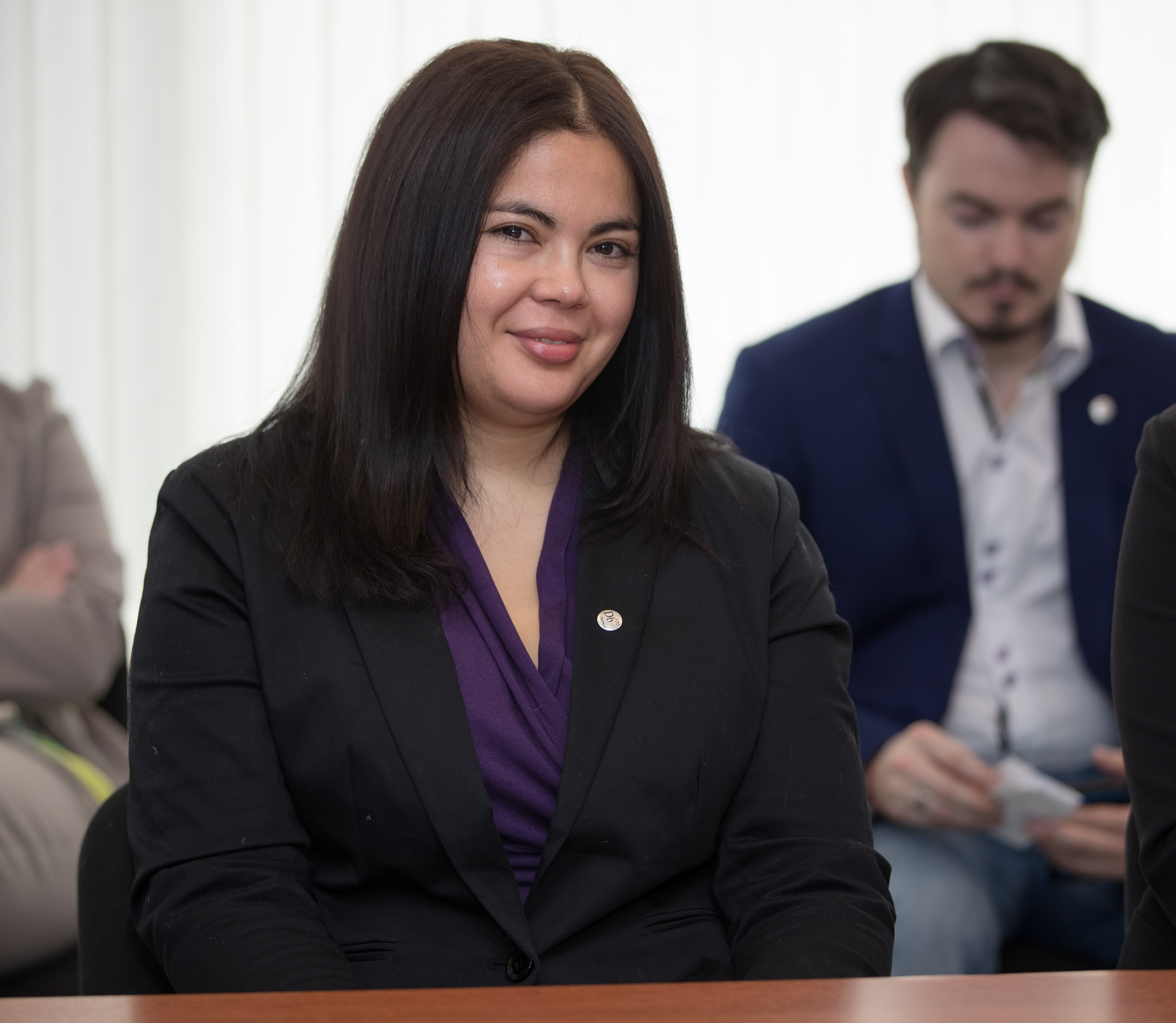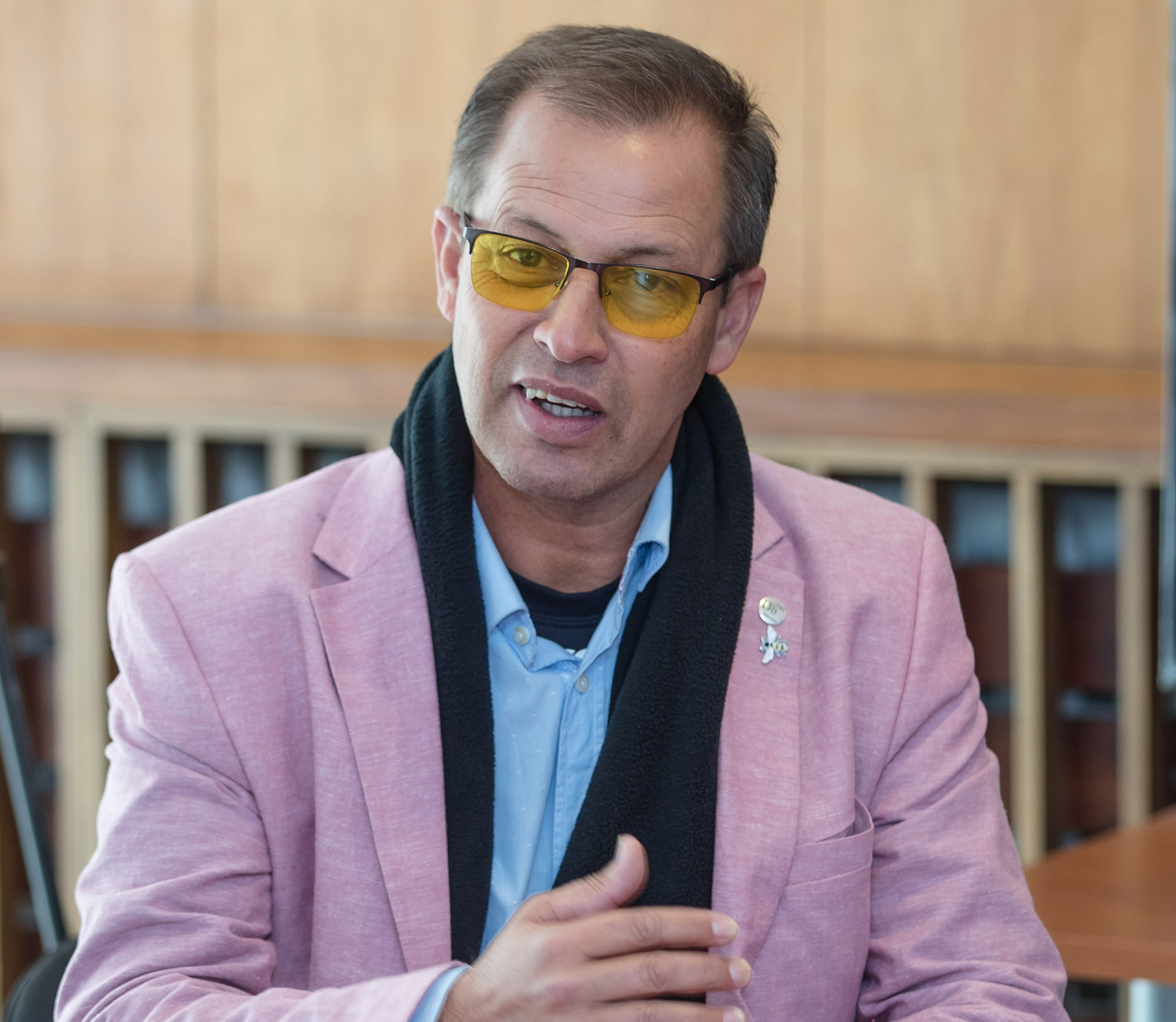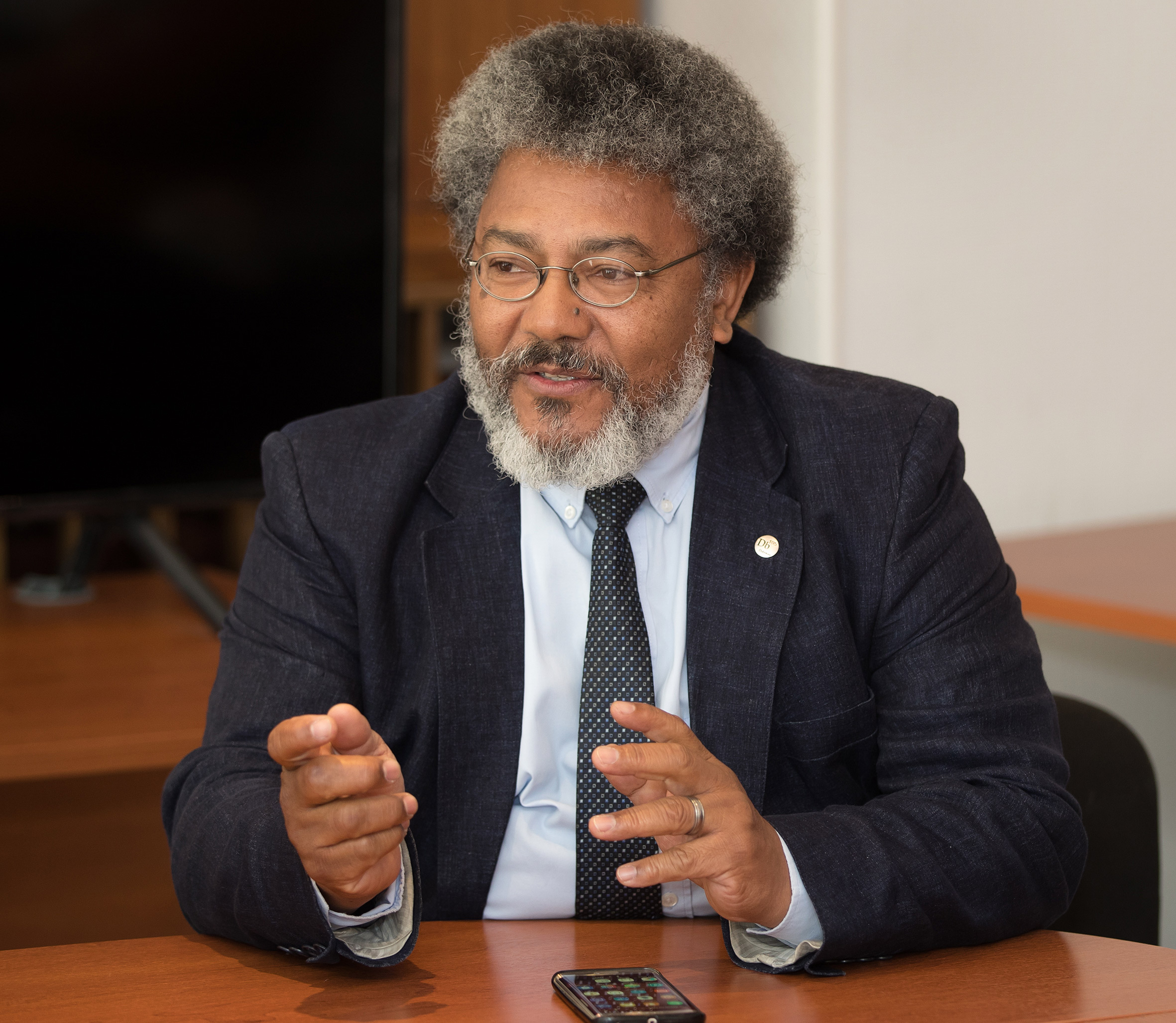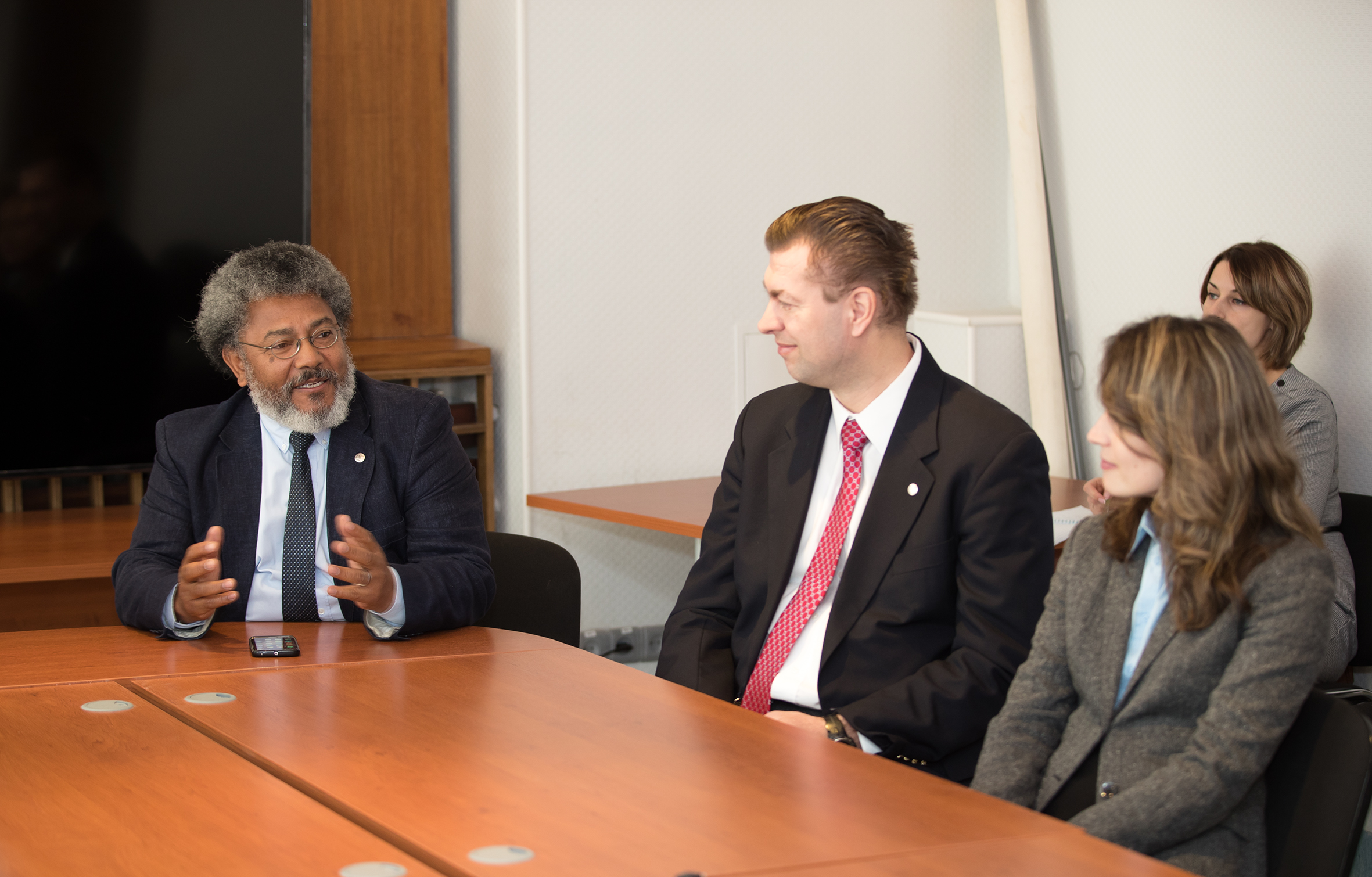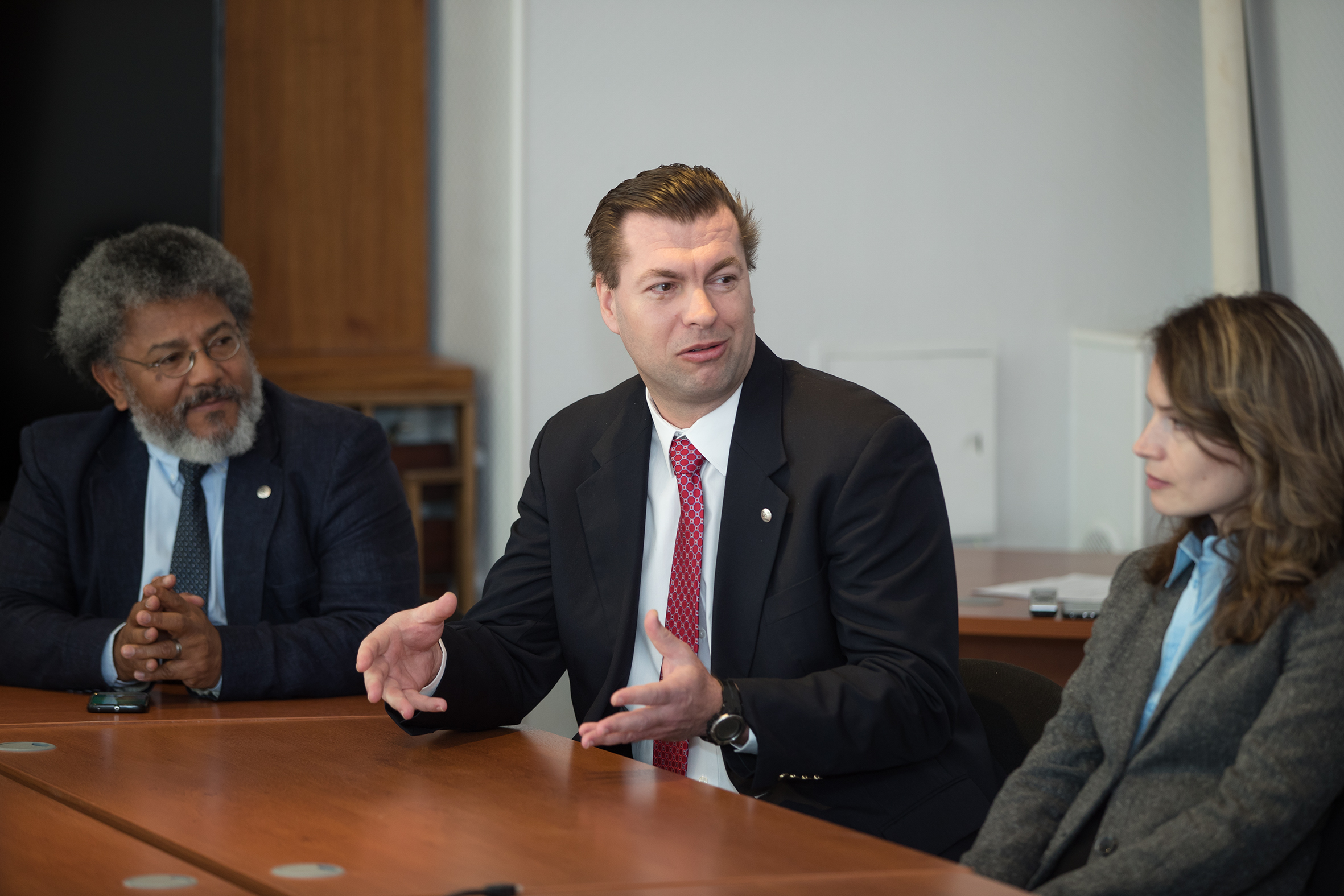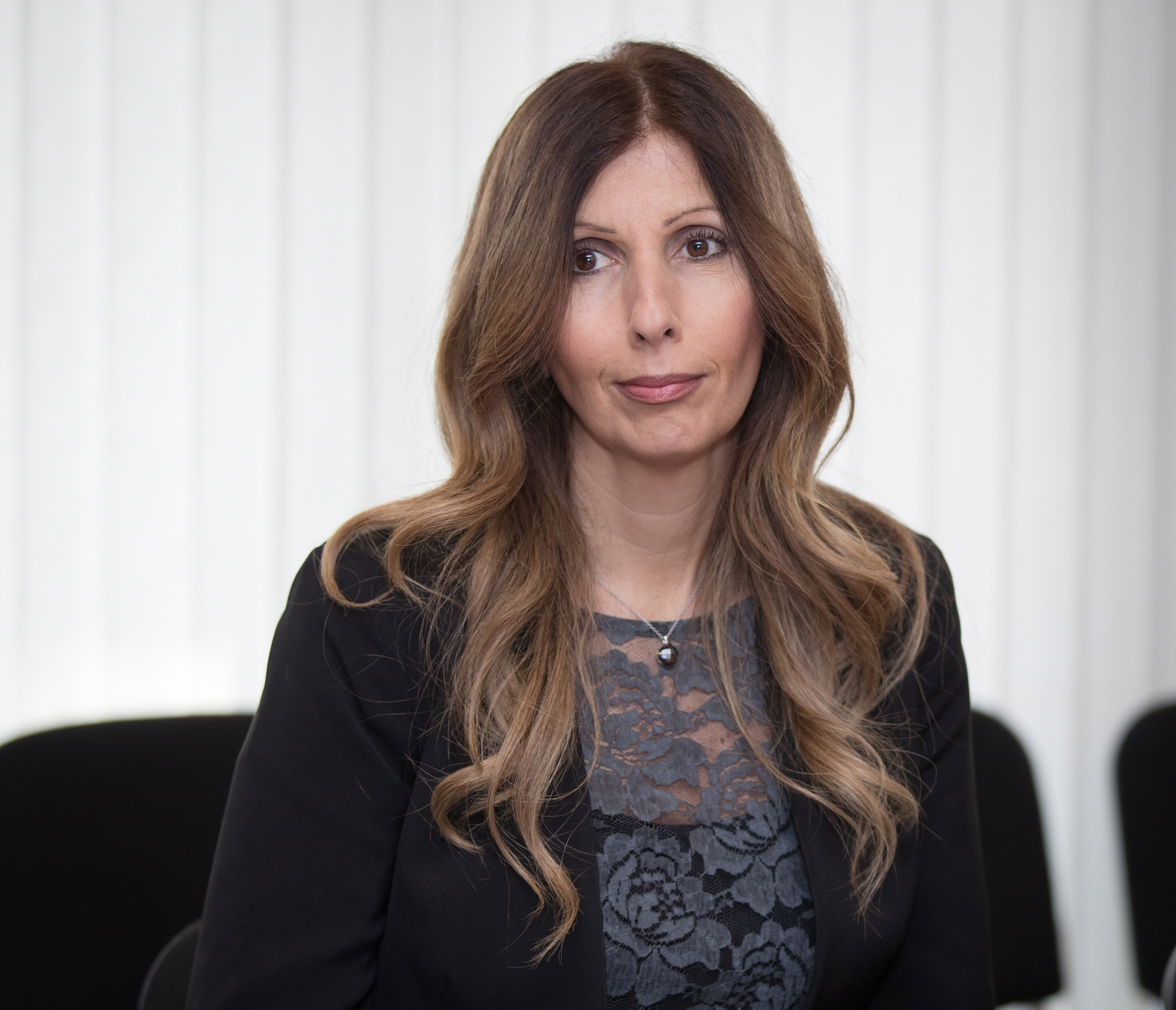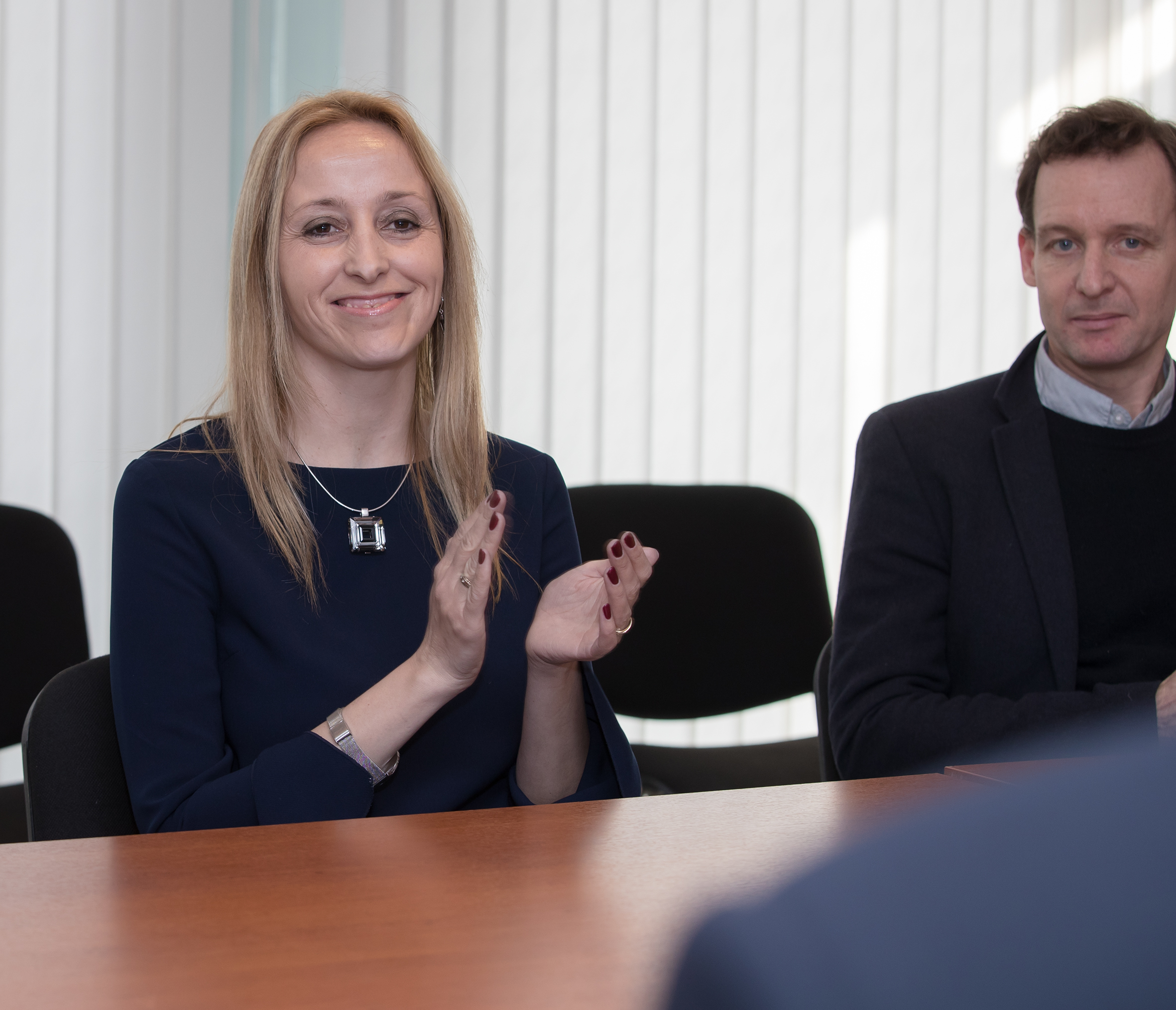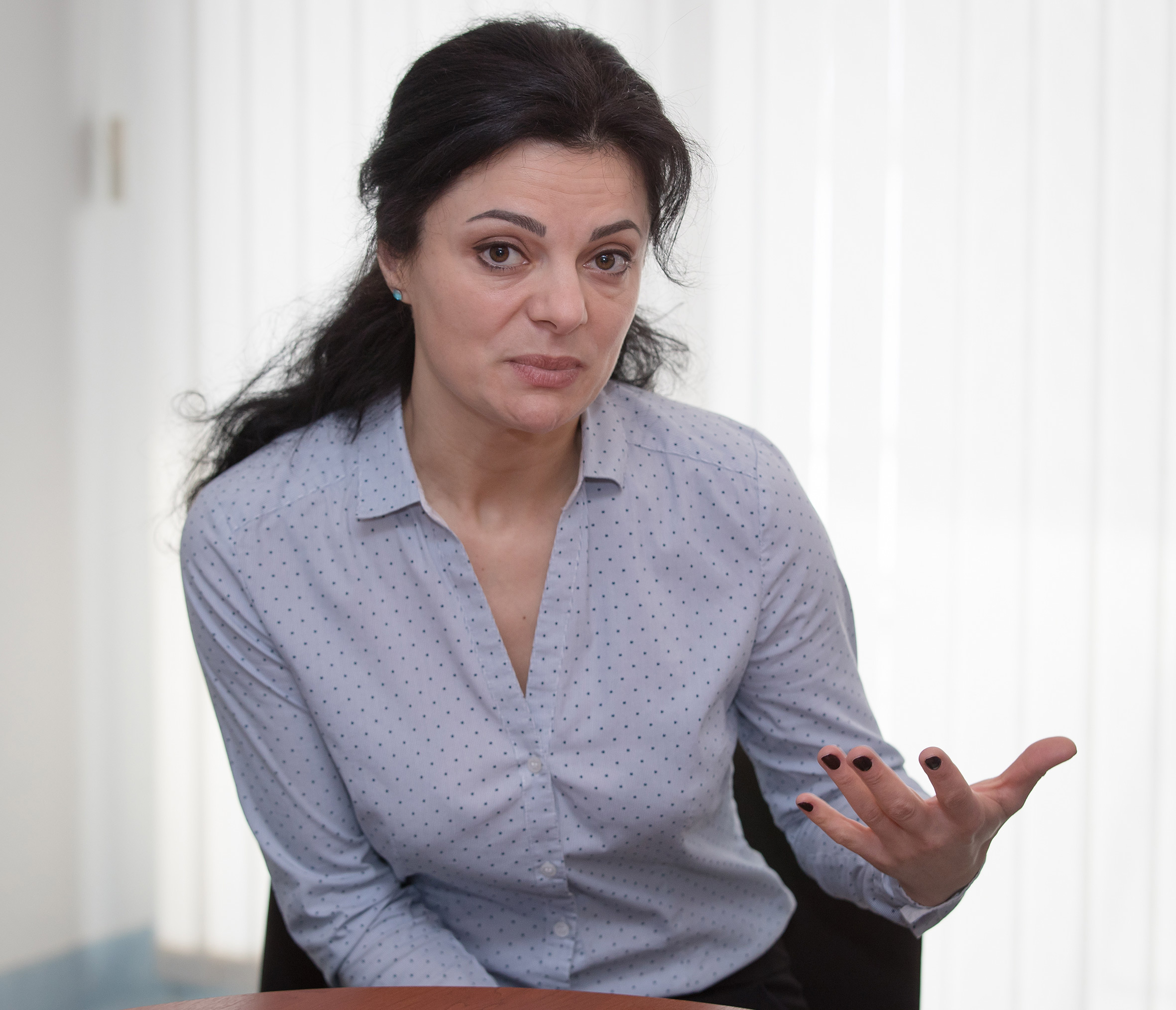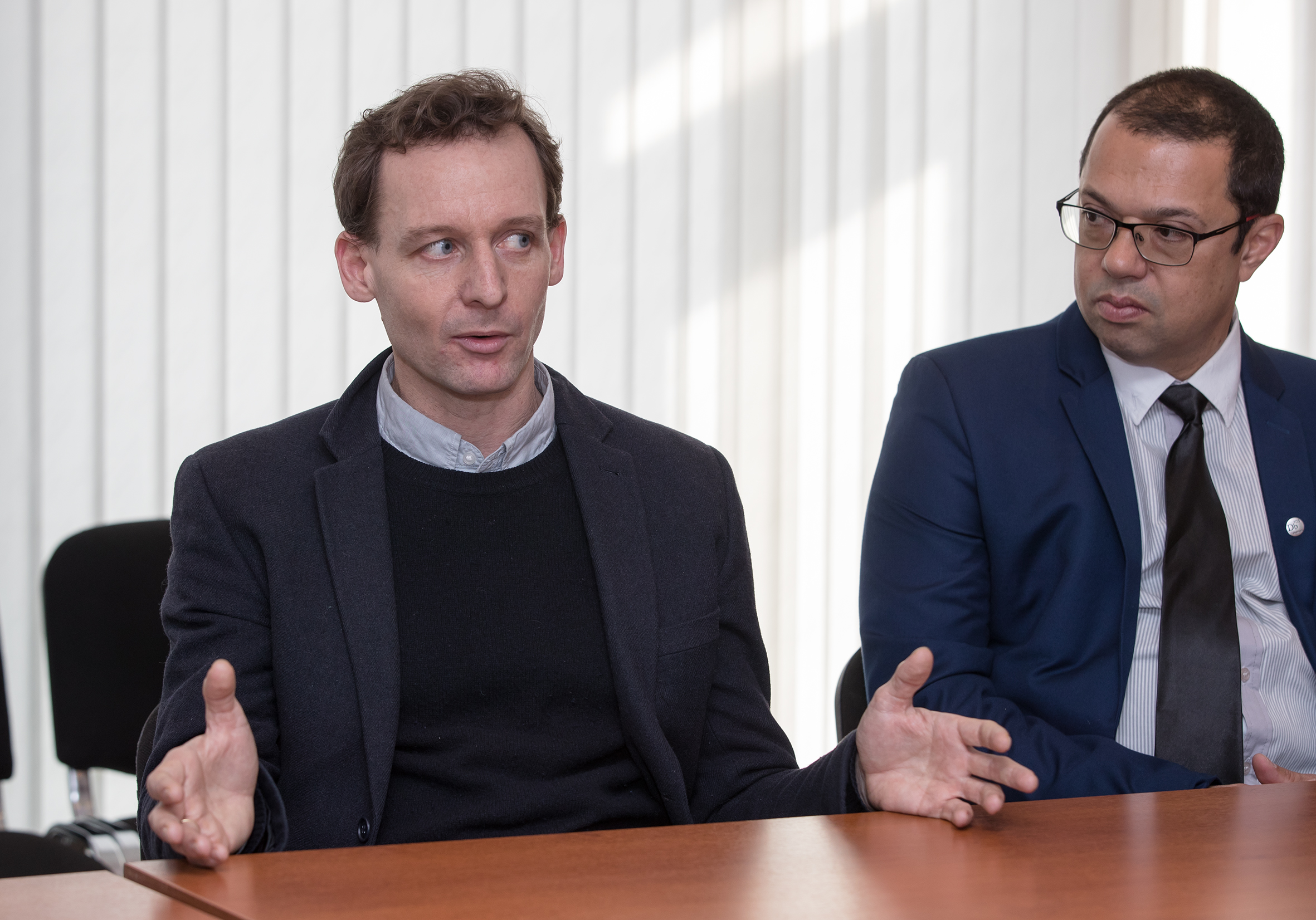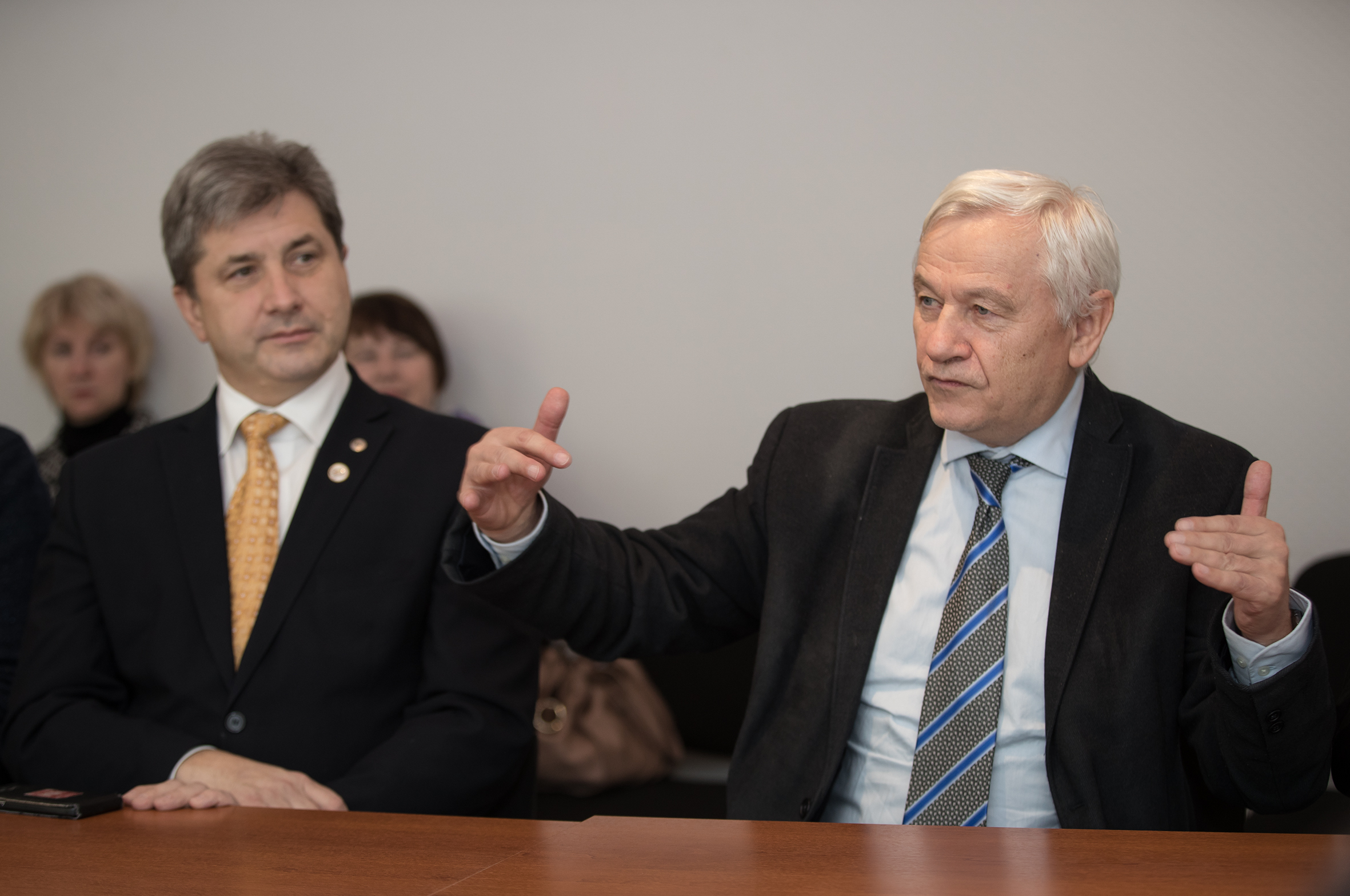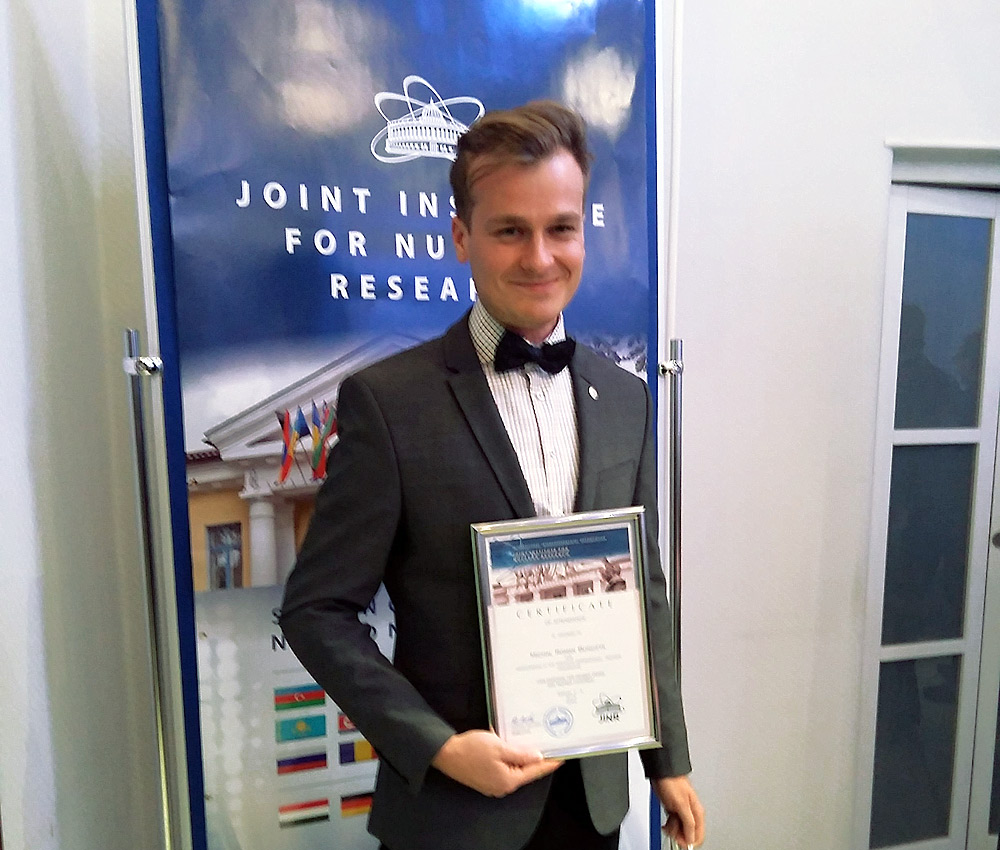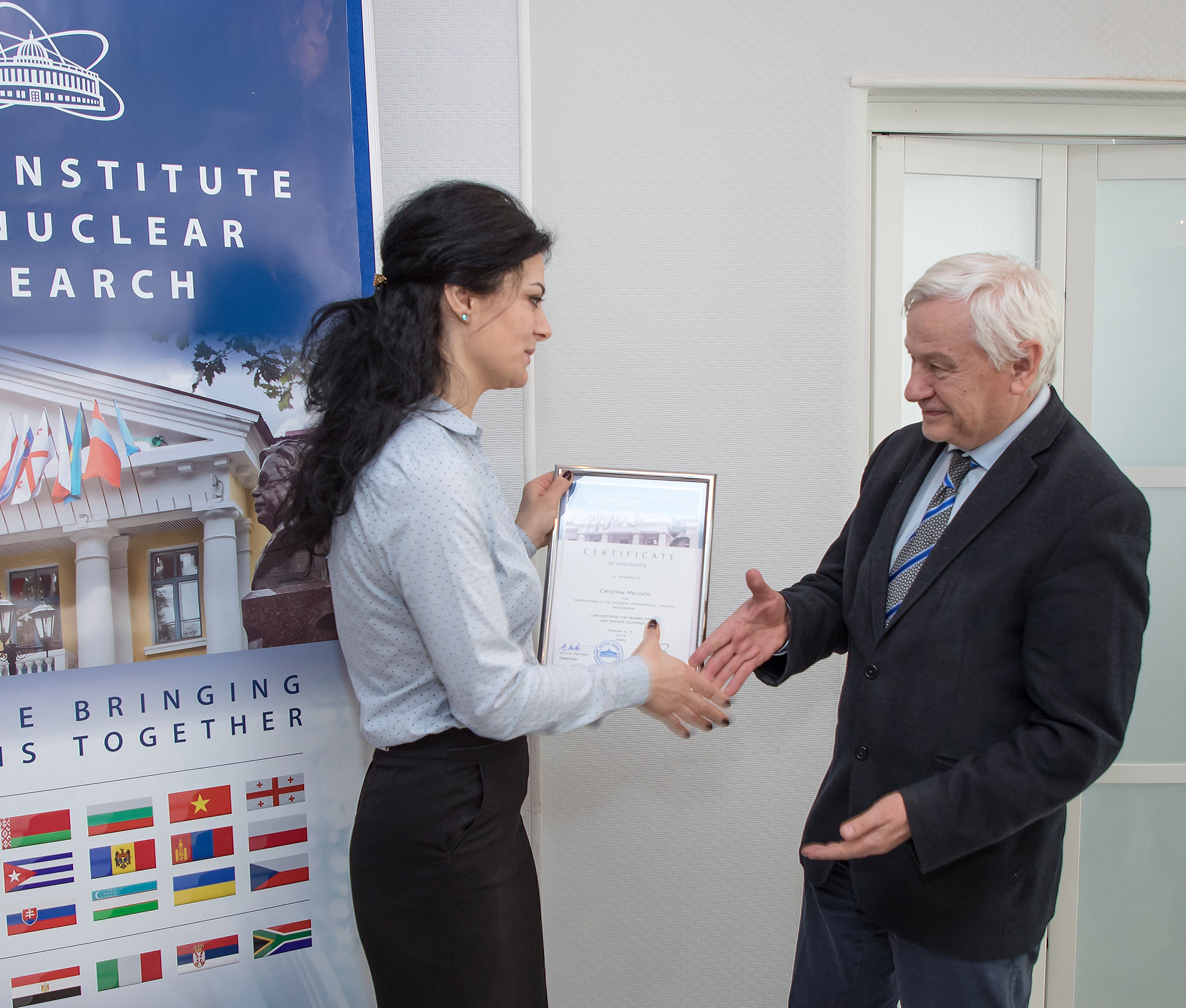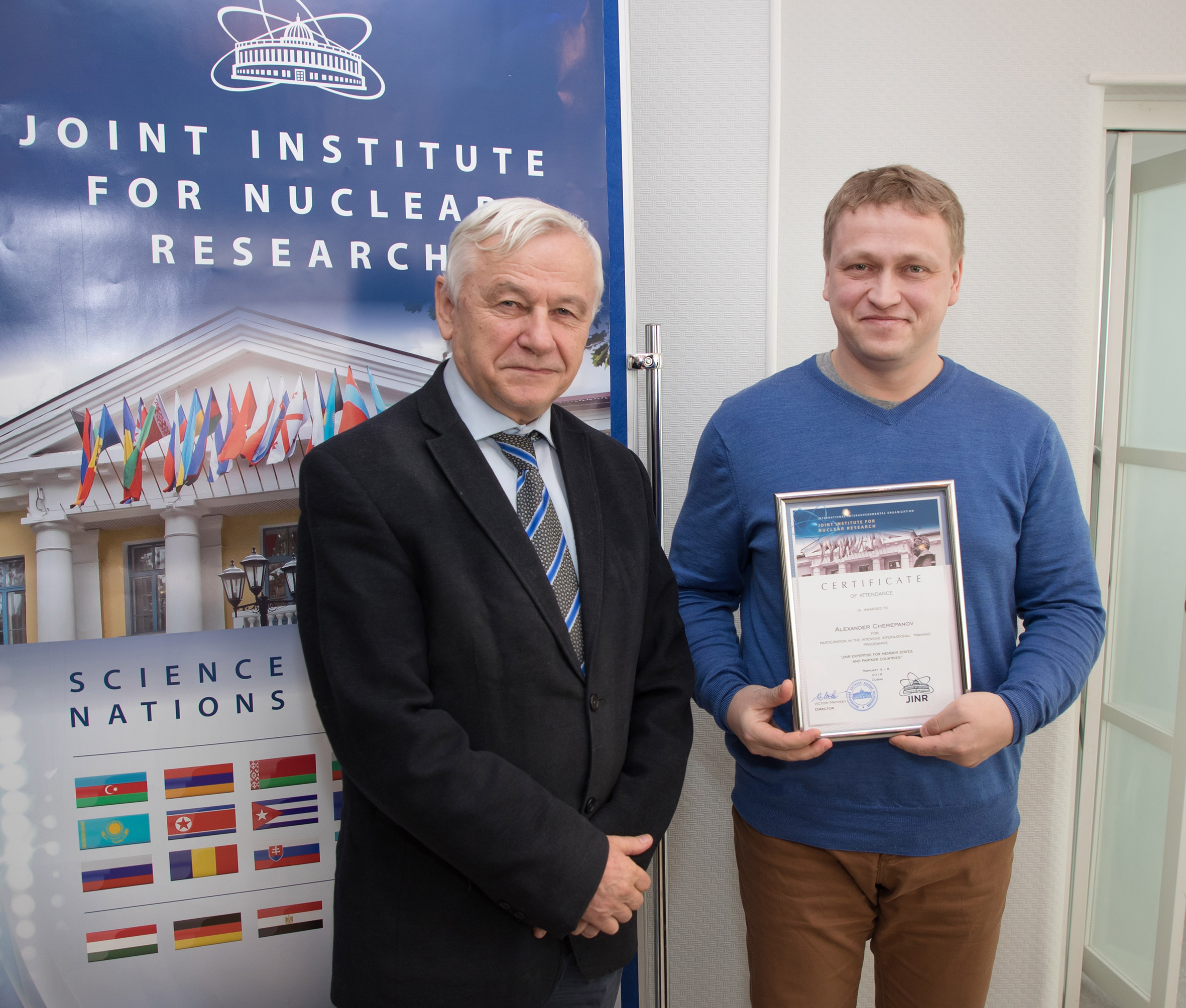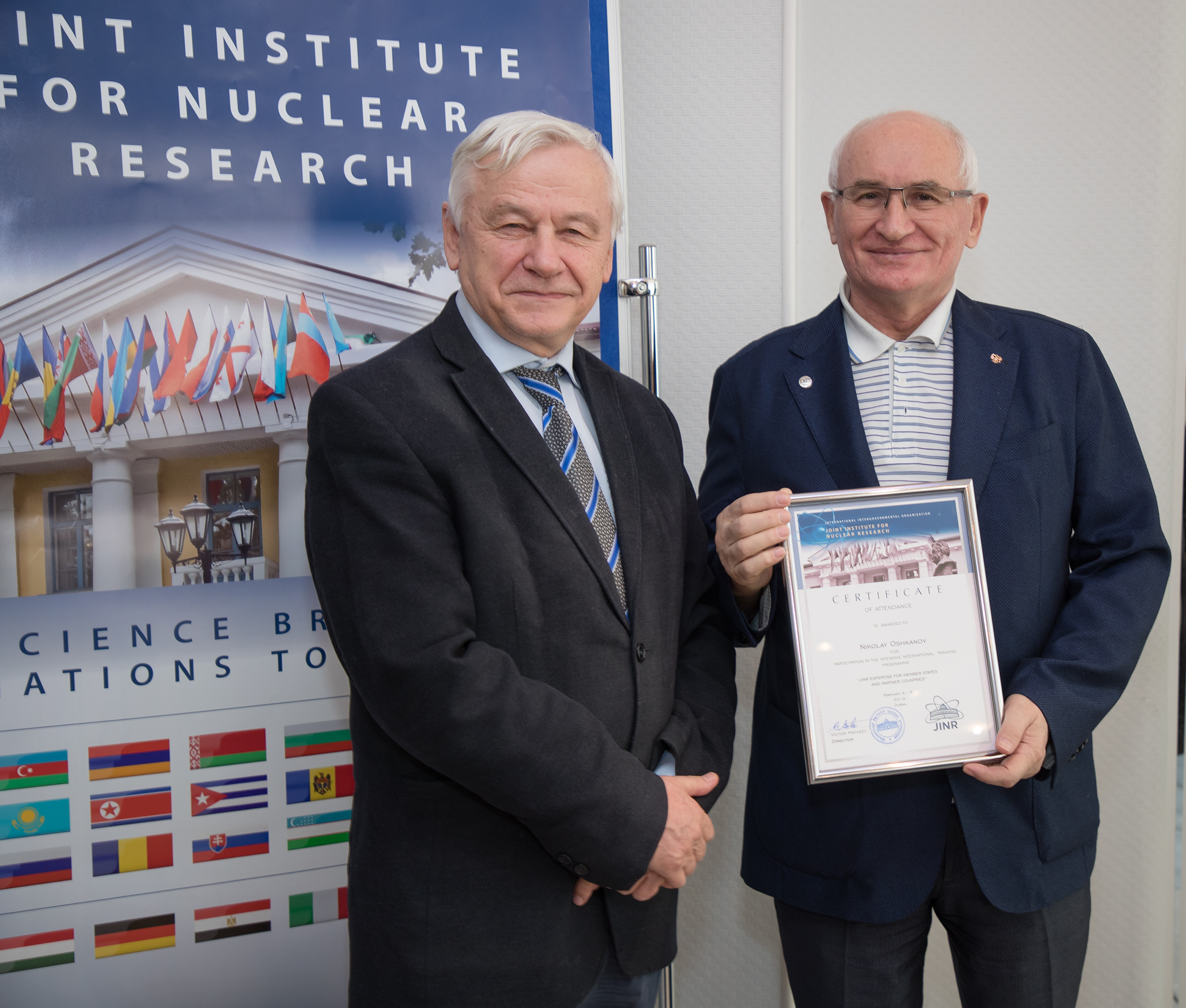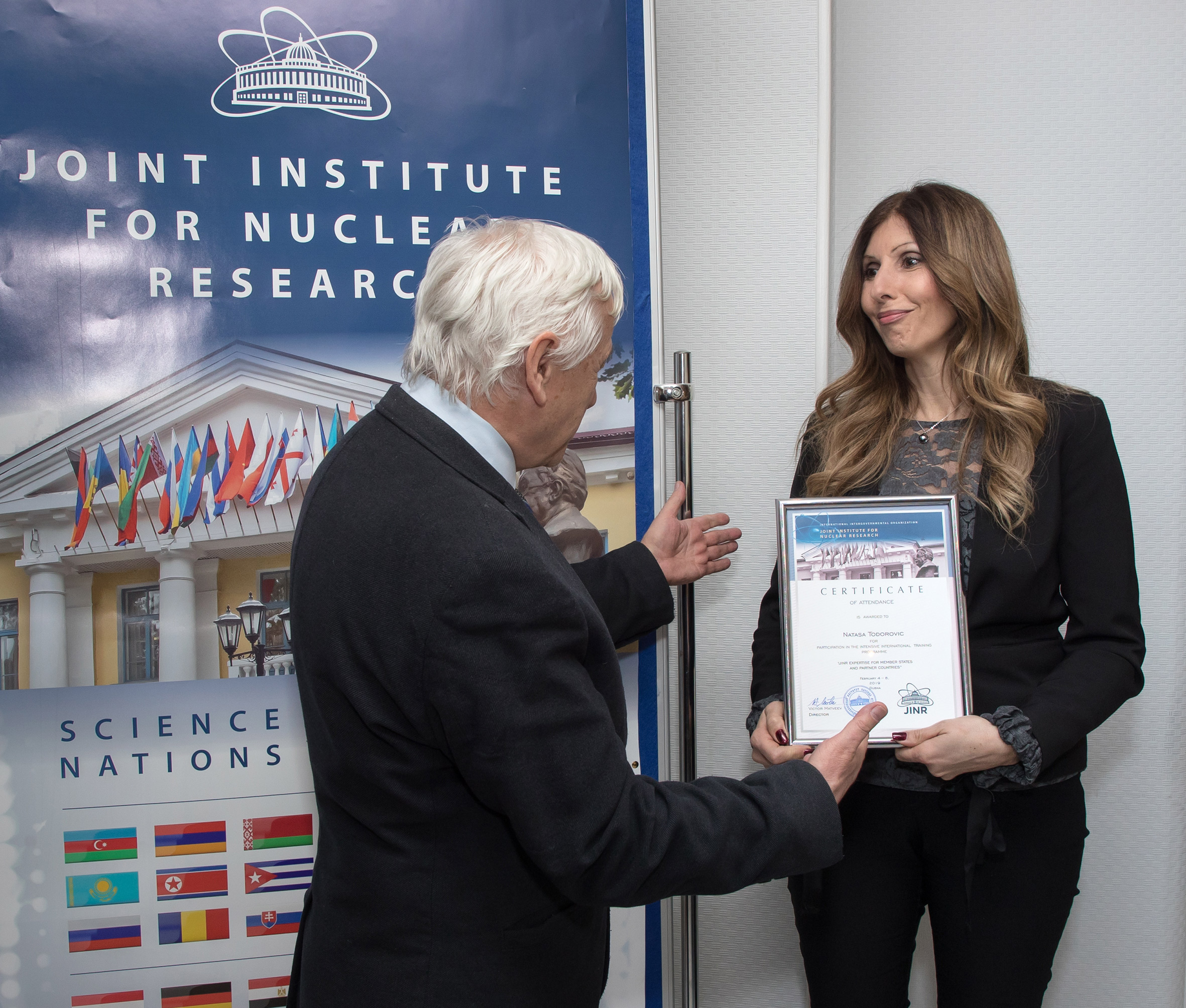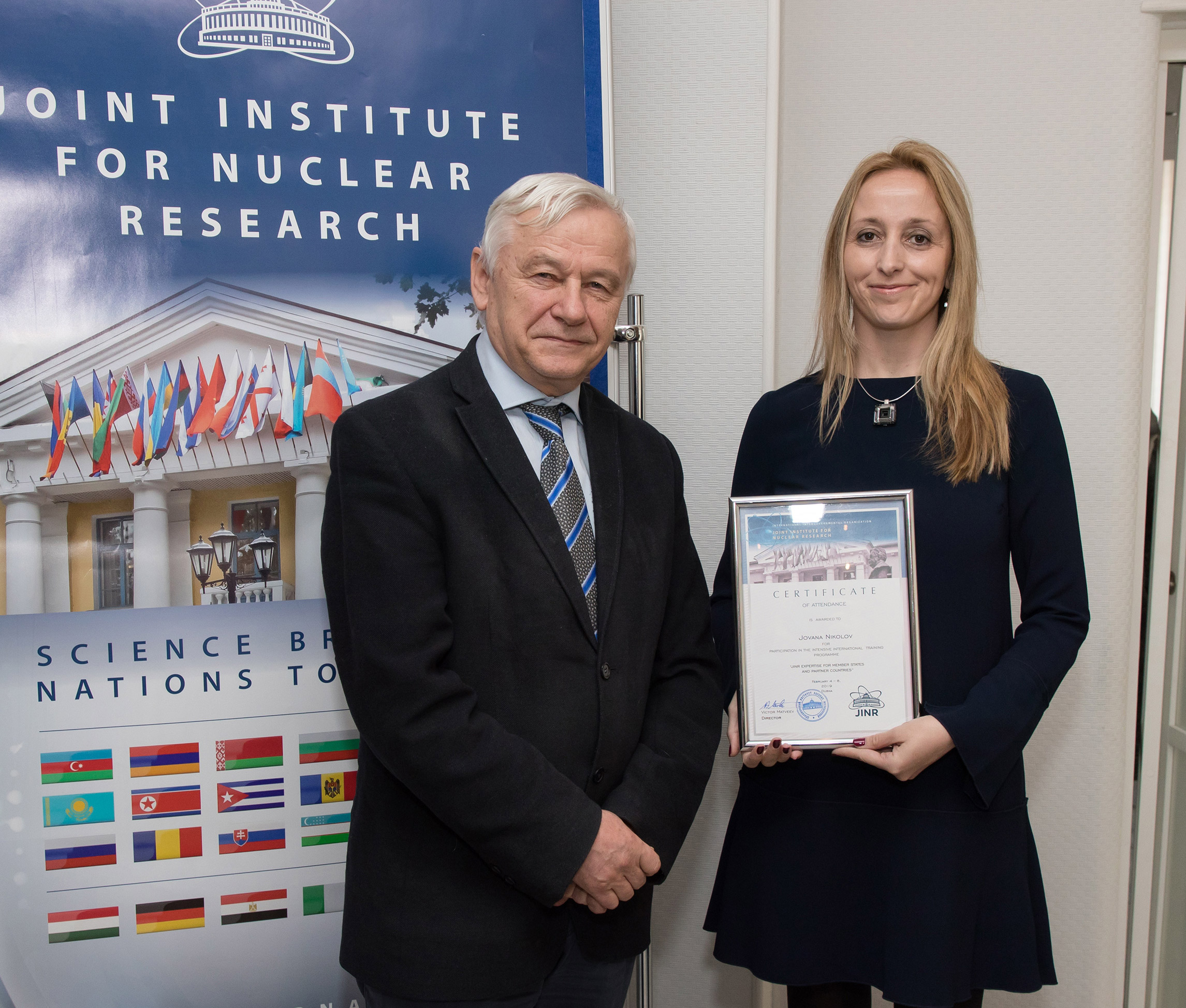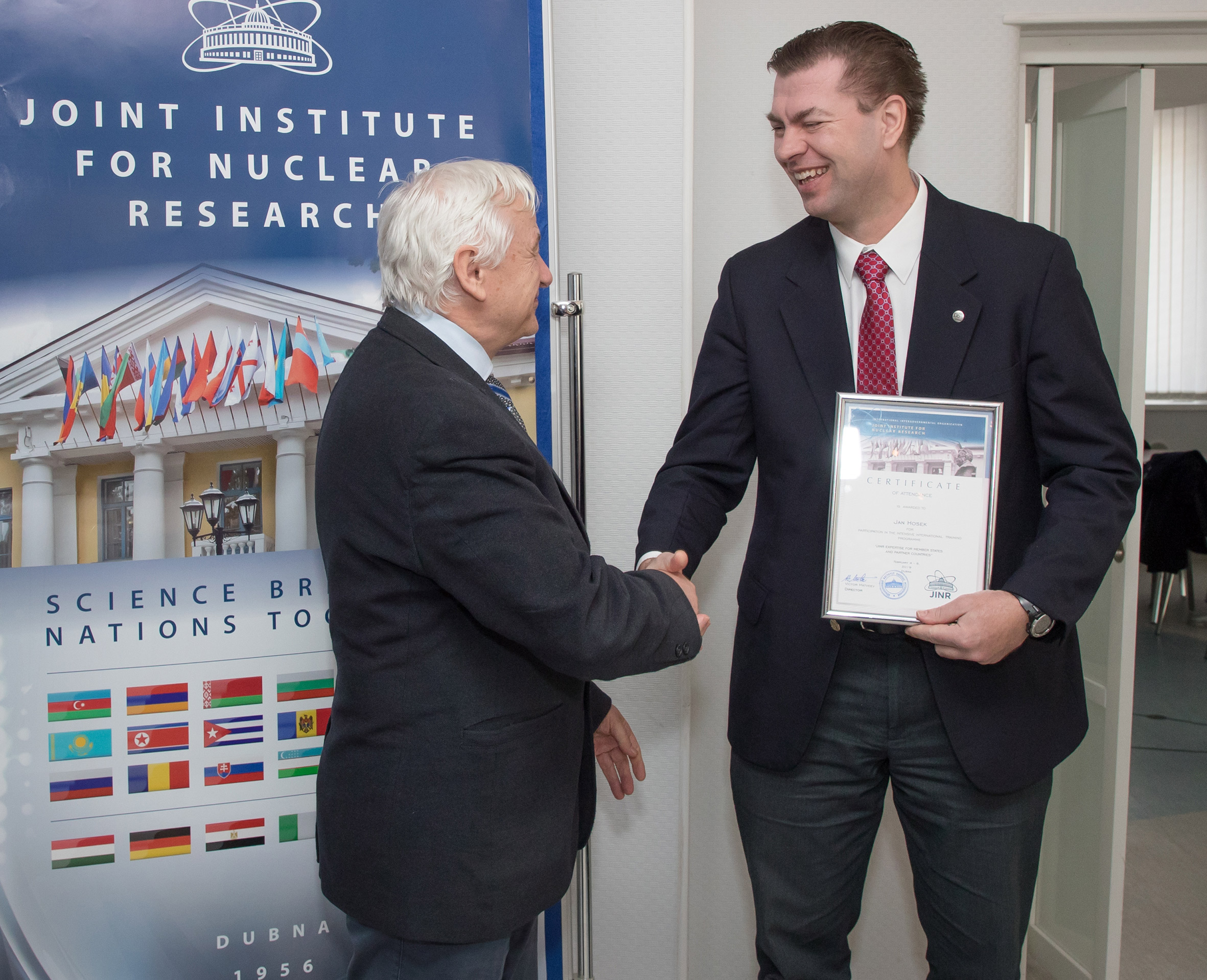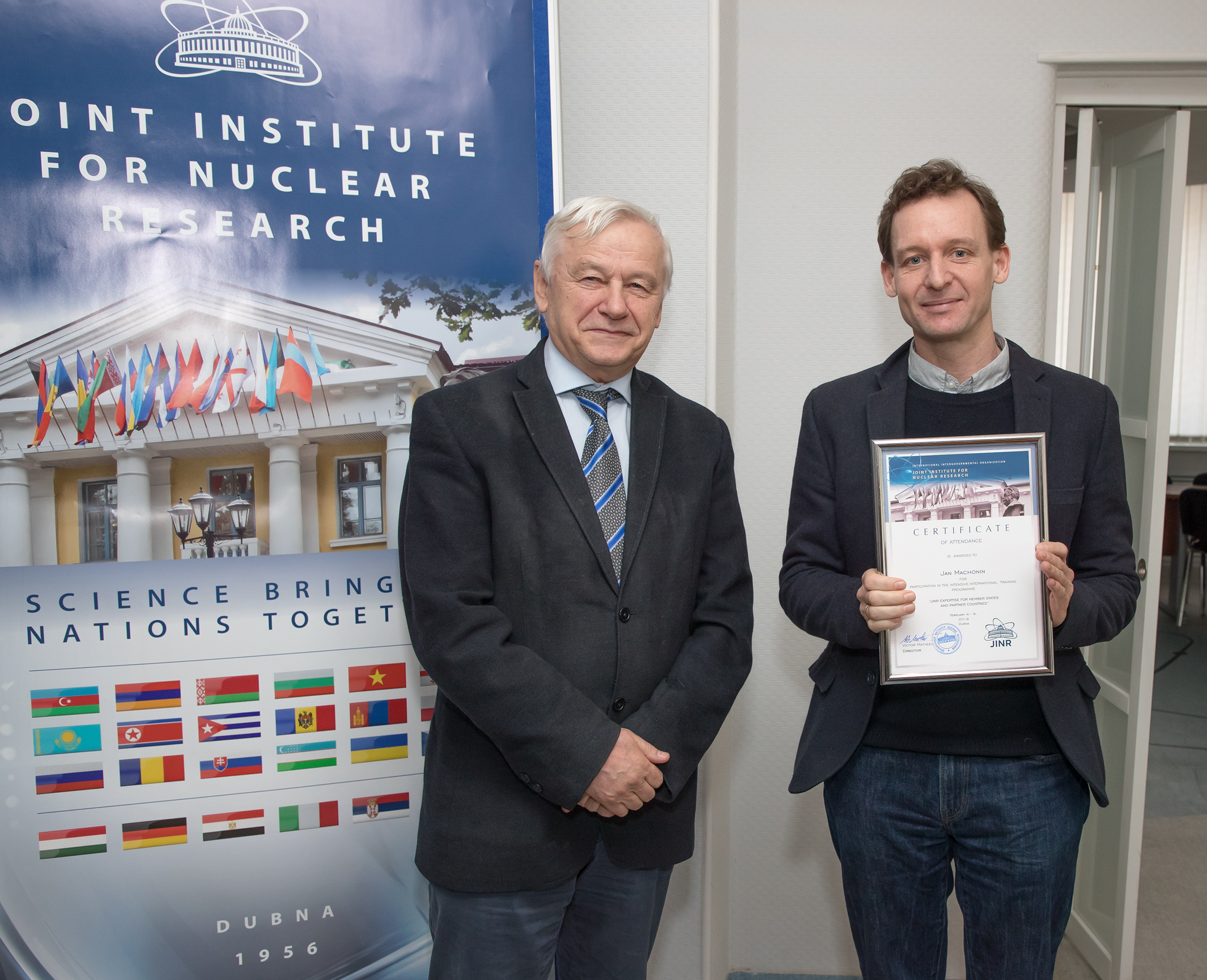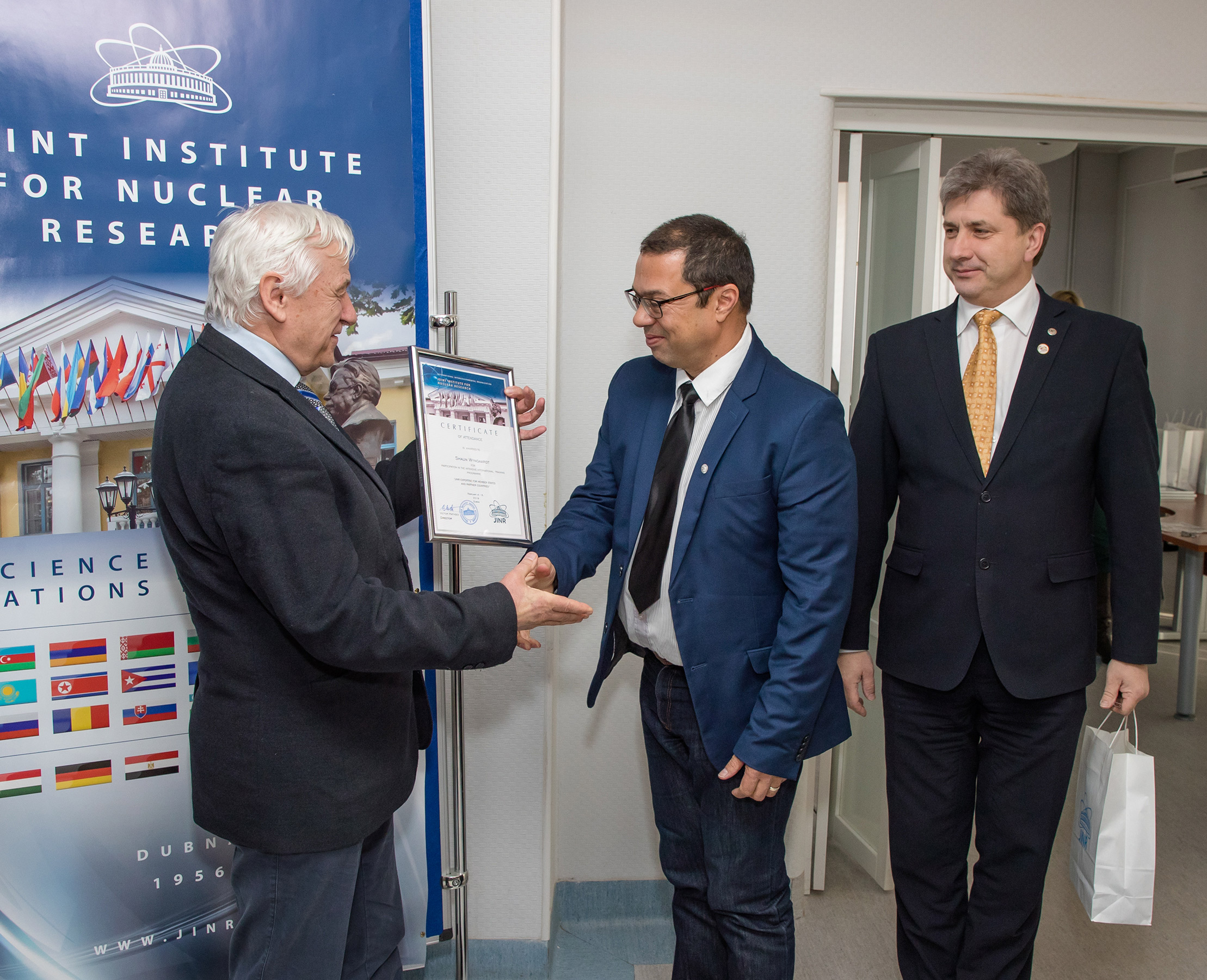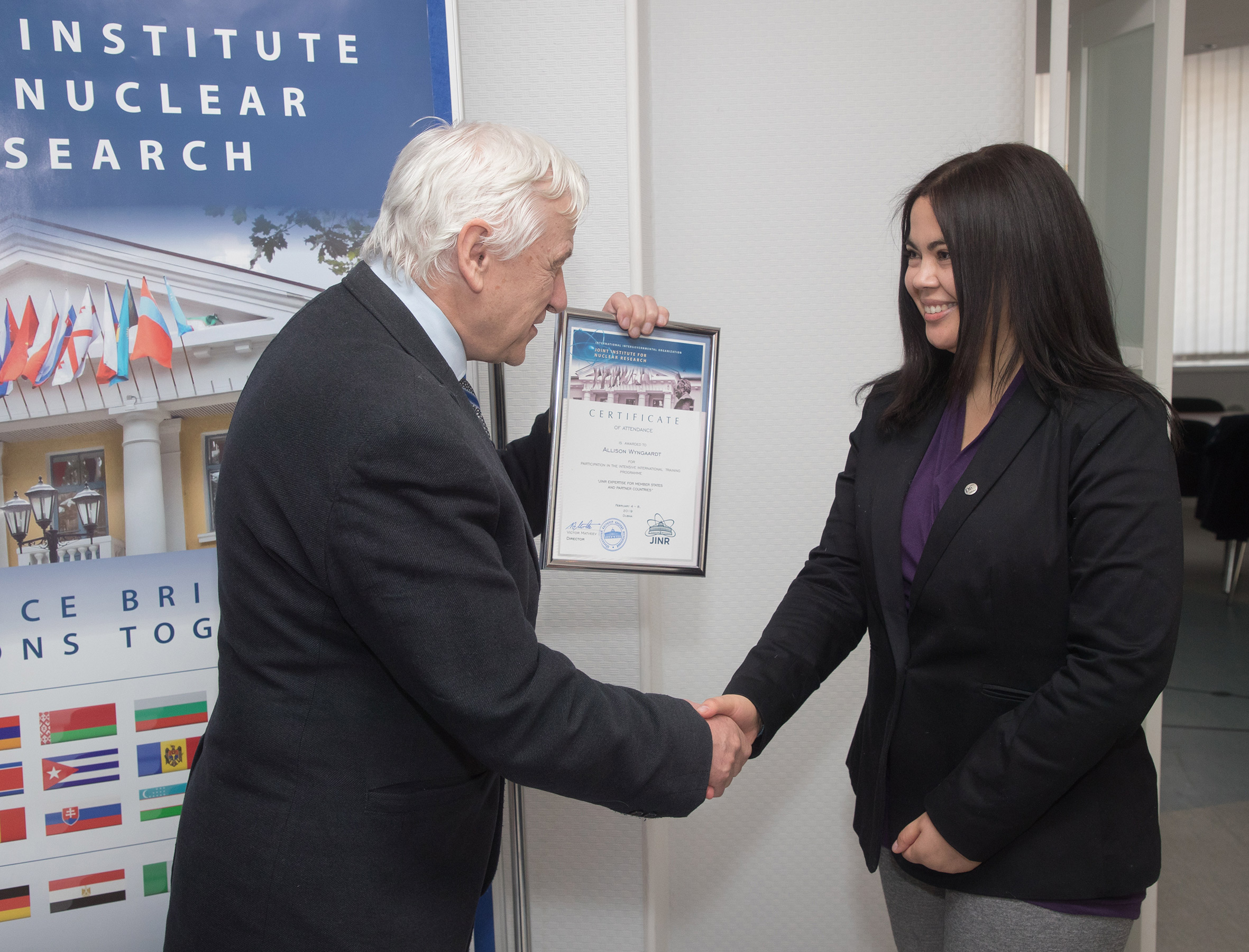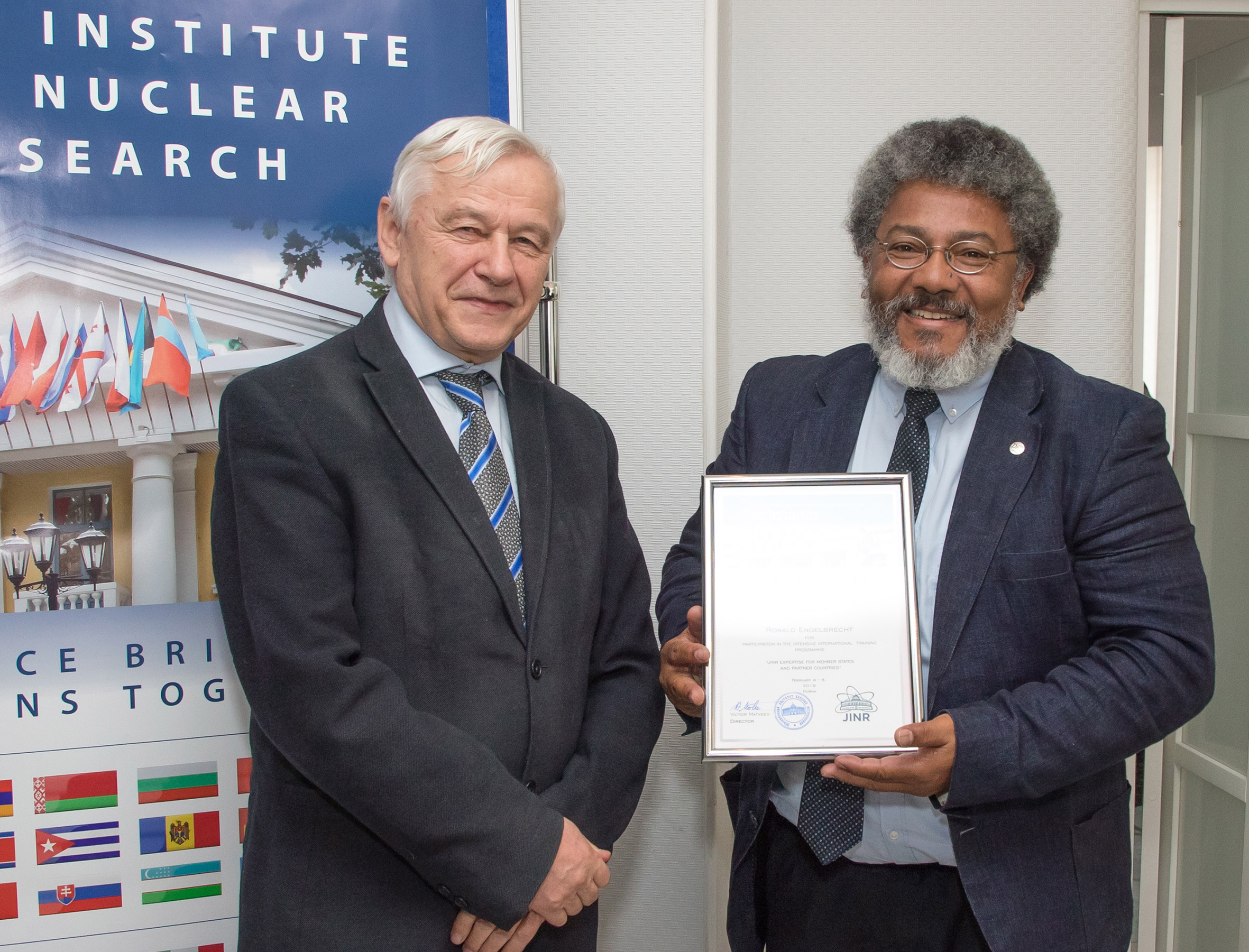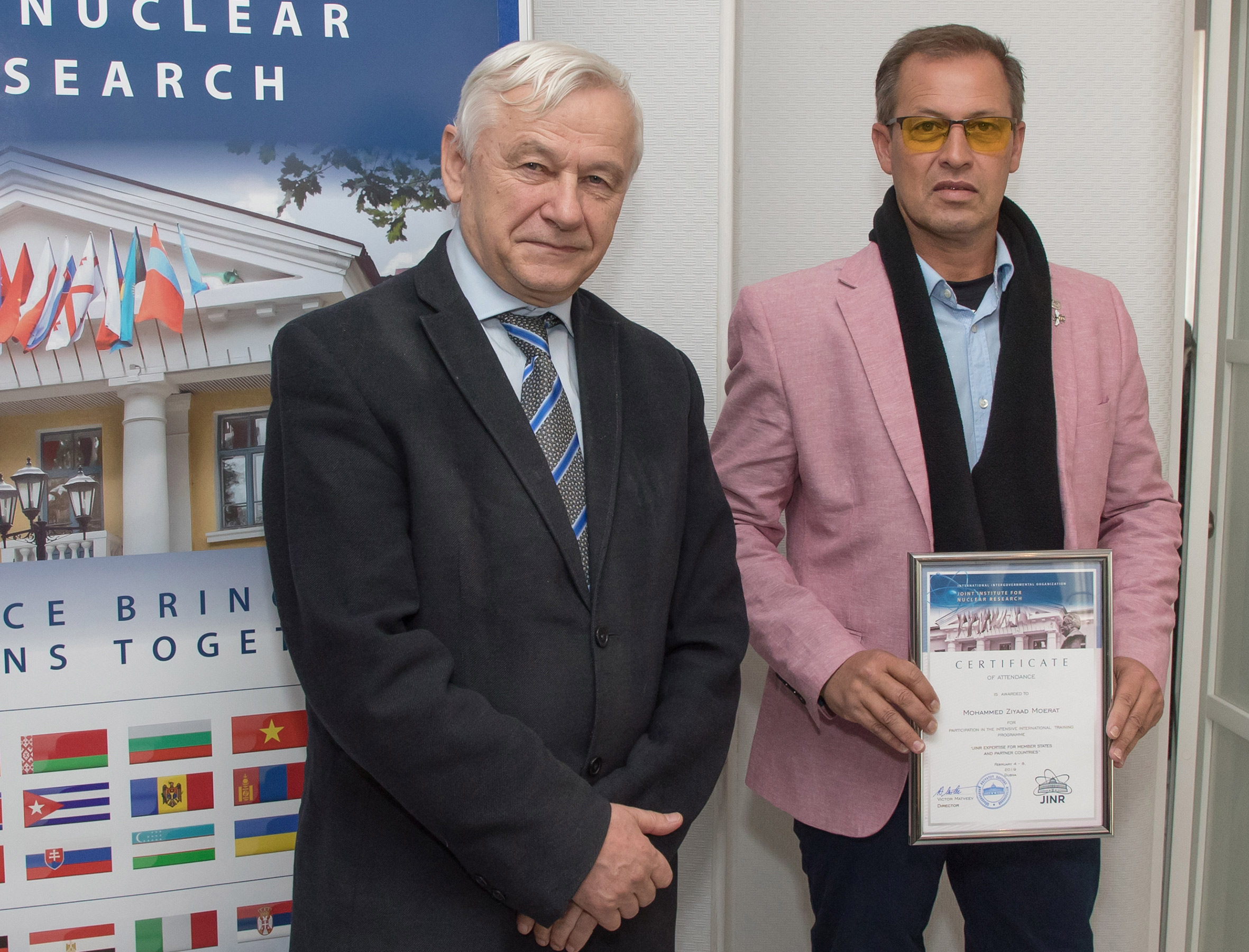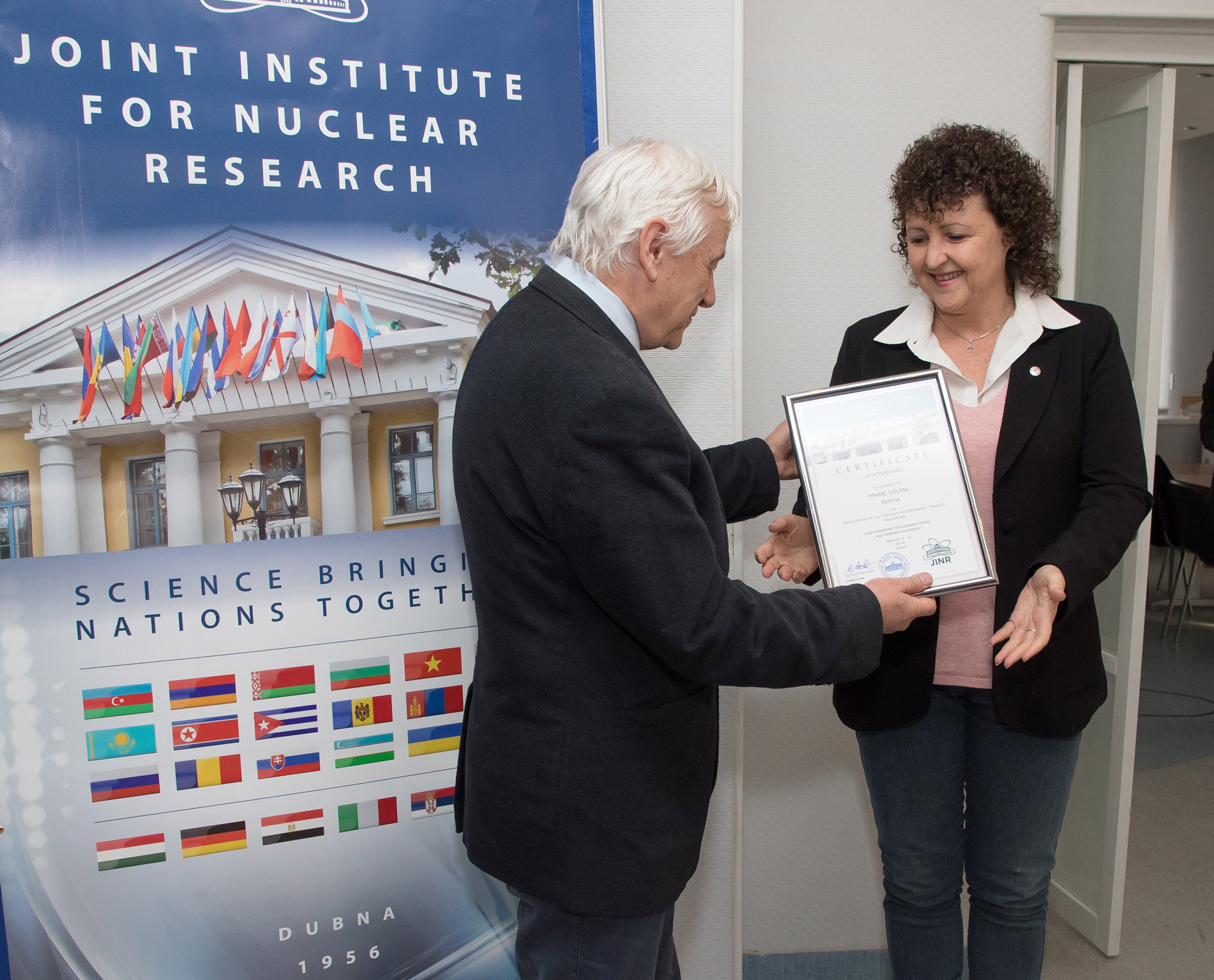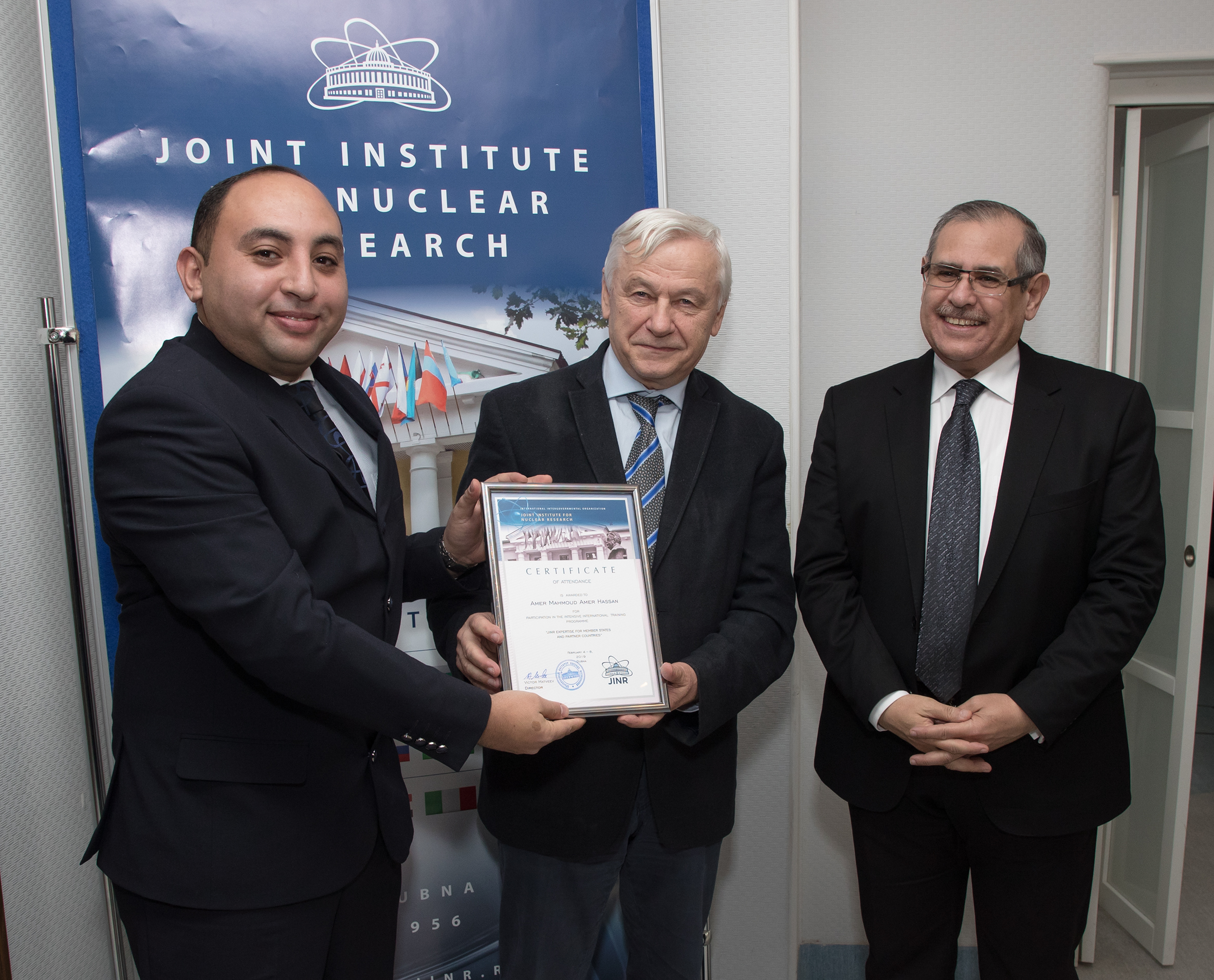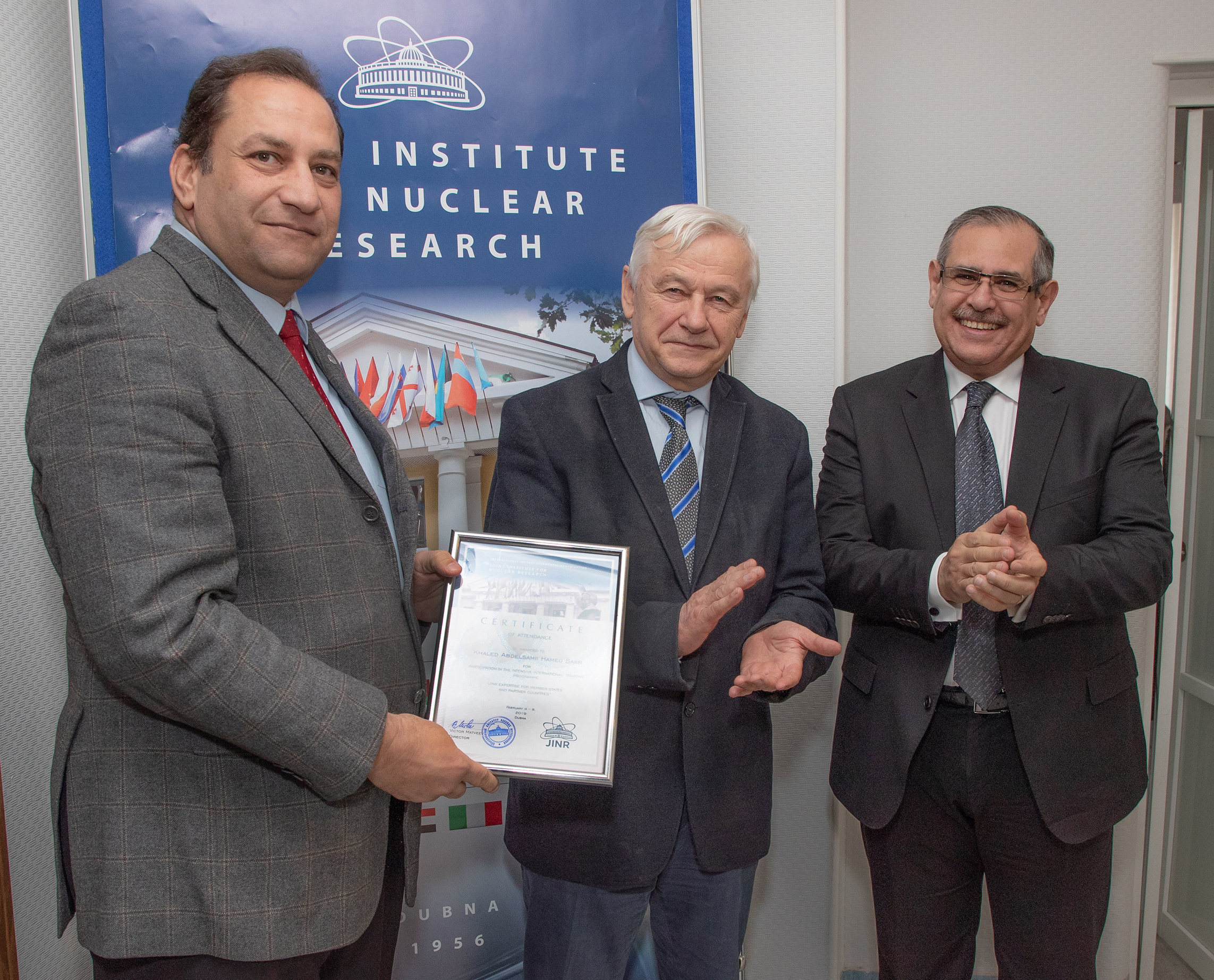JEMS-10 concluded: “Without training of the youth our facilities will be useless”
News, 18 February 2019
On 8 February 2019, the 10th International Training Programme for decision-makers in science «JINR Expertise for Member States and Partner Countries» (JEMS) was concluded. It gathered representatives of scientific, educational and state institutions from Egypt, the Czech Republic, Poland, Romania, the RSA, Russia, and Serbia. The training programme started on 4 February.
According to the programme, participants were acquainted with scientific research of JINR, international cooperation, had lectures prepared by specialists and leaders of the Joint Institute and visited the JINR laboratories. The lecture programme of JEMS-10 included a new element – the overview of the JINR social infrastructure. The training programme was concluded by the round table at which JINR Vice-Director R. Lednický welcomed participants of JEMS on behalf of the JINR Directorate.
A characteristic feature of the round table was the participation of Ambassador Extraordinary and Plenipotentiary of Egypt Ihab Nasr who paid a working visit to JINR. Ambassador expressed his wish to learn about the organization and milestones of the JEMS training programme as well as to take part in the ceremony of awarding certificates to Egyptian participants of JEMS. In his speech, Ambassador was glad to highlight the extent to which the African continent was represented at JEMS. He also expressed his hope for active development of cooperation with JINR and countries of the African region at large. He also noted that he was interested to hear impressions and comments of JEMS participants from different countries and to learn what they have gained from this training programme.
Representatives of the Egyptian Atomic Energy Agency (EAEA) took part in the present training programme. EAEA Deputy Chairman Khaled Sakr informed that he was pleased to learn about the scientific infrastructure for applied research of JINR that turned out to be more extensive than the basic facilities are presented on the JINR website. Being a supervisor of internships in EAEA, Khaled Sakr noted that after the JEMS training programme he saw the necessity to increase the number of Egyptian students and scientific staff in JINR. Professor of the Nuclear Research Centre of the EAEA Amer Hassan said that participation in JEMS allowed him to estimate the scale of research carried out in JINR. He also expressed his hope for active development of cooperation with the Joint Institute and highlighted the nanocentre and the FLNR accelerating complex, the microtrone in particular, as well as opportunities of the Virtual Laboratory as issues of special interest.
JEMS-10 participants from Russia were representatives of the Ural Federal University with which JINR had already signed the framework cooperation agreement. “We have scientific developments for the progress of which JINR has necessary experimental basis,” Nikolay Oshkanov, Professor of the Ural Power Engineering Institute, said. “We have made a certain offer on joint projects and we will wait for the reaction of your leaders. After this visit, we understand how to organize student visits which are an important part of joint work. I believe that these issues should not be postponed, and this should be implemented fast.” In the frames of participation in JEMS, Nikolay Oshkanov held the scientific seminar in the Frank Laboratory of Neutron Physics at which he presented results of research in the fields of kinetics of the nuclear reactor.
Shaun Wyngaardt, Head of the Nuclear Radiation and Health Physics Department, the Department of Physics of the Stellenbosch University, the RSA: “According to its motto, JINR provides an opportunity for specialists from different countries to meet at a common platform and join efforts to extend their opportunities in the fields of science as well as in relevant fields. Thanks to participation in the JEMS training programme, the RSA delegation got an excellent opportunity to meet our colleagues from Egypt that is on the opposite side of the African continent. Now, we have a direct pipeline to Cairo from Capetown and an opportunity to exchange experience, information and technologies in the fields of science and education.”
Following the meeting on virtual laboratories organized by the Stellenbosch University in the frames of the 5th RSA-JINR scientific forum, specialists of this university interested in further development of cooperation with JINR took part in the training programme. Marie Louise Botha, Senior Lecturer in the University of Stellenbosch, highlighted the necessity to search for new approaches and methods in education having noted that JINR has considerable potential for cooperation in this field. Allison Wyngaardt, Director of Educational Support of the Development Research Institute of Virtual Engage (DRiVE), found meetings on virtual laboratories held in the frames of JEMS very fruitful. Cooperation opportunities in the fields of virtual education were noted by Mohammed Ziyaad Moerat, Senior Education Specialist of the Western Cape Education Department (WCED), the RSA, and Ronald Shane Engelbrecht, Curriculum Advisor for the FET&GET educational programme of the same Department, who continued the topic with following words: “They say in our country that when you start your service as a teacher, you continue to learn. The educational process needs constant development, achievements of modern physics, which are not in the foreground in the current educational process, should be demonstrated more brightly. We would like to achieve what we call “advanced placement physics”, to unite engineering sciences and physics in the educational process.”
Natasa Todorovic, Professor of the Department of Physics, the University of Novi Sad, Serbia: “It is the first time I am in JINR and Russia, and I hope that not the last one. JINR greatly impressed me, and I would like to share these impressions with my colleagues and students, and beyond my university as well. I am sure that we should cooperate in the fields of student exchange and summer schools. I also hope that the JINR Information Centre will be opened soon at our university.” Jovana Nikolov, Associate Professor of the Department of Physics in the University of Novi Sad, supported the statement of her colleague about the importance for young Serbian scientists to have an opportunity to work at the advanced experimental facilities of JINR. “It is important for such a small country as Serbia to be a partner of such large-scale scientific centres as JINR or CERN,” she ended her speech.
Jan Hosek, Leader of the Division of Precision Mechanics and Optics, the Department of Instrumentation and Control Engineering of the Czech Technical University, expressed his hope that his students in engineering sciences would be able to come to JINR. “Having visited Dubna, I was very impressed by and interested in the research fields of JINR. My Faculty cooperates with CERN in various projects. I am sure that our organizations may develop cooperation in the engineering fields in addition to physics.”
A representative from Romania took part in the JEMS training programme for the first time. Cristina Melinte, Deputy Director of the Institute of Atomic Physics (IFA), informed that in addition to the acquaintance with the Joint Institute her visit was also aimed at issues of the administrative and financial organization of joint projects. “I am very thankful for your lecturers for their ability to present complicated scientific information to the administrative staff members, who do not know physical terminology, in a comprehensible way. As for the fields of my profession, I got detailed information necessary for the organization of the future cooperation that I will present to senior officials.”
Before the awarding ceremony that concluded the 10th JEMS training programme, JINR Vice-Director Richard Lednický summed up the milestones of the round table and highlighted the significance of education that is one of three JINR pillars in line with scientific research and innovation development: “We work for the future, our experimental facilities that are under construction are aimed at those who now only start their education. Without bringing up new generations of scientists and specialists these facilities will be useless. That is why we should take part in the educational process using various platforms, including new, such as the Virtual Laboratory. The JEMS training programme provides this opportunity for specialists from state and educational institutions of various countries to learn about educational opportunities of JINR as well as exchange knowledge.”
Photos by Igor Lapenko (Scientific Information Department) and participants of the meeting
